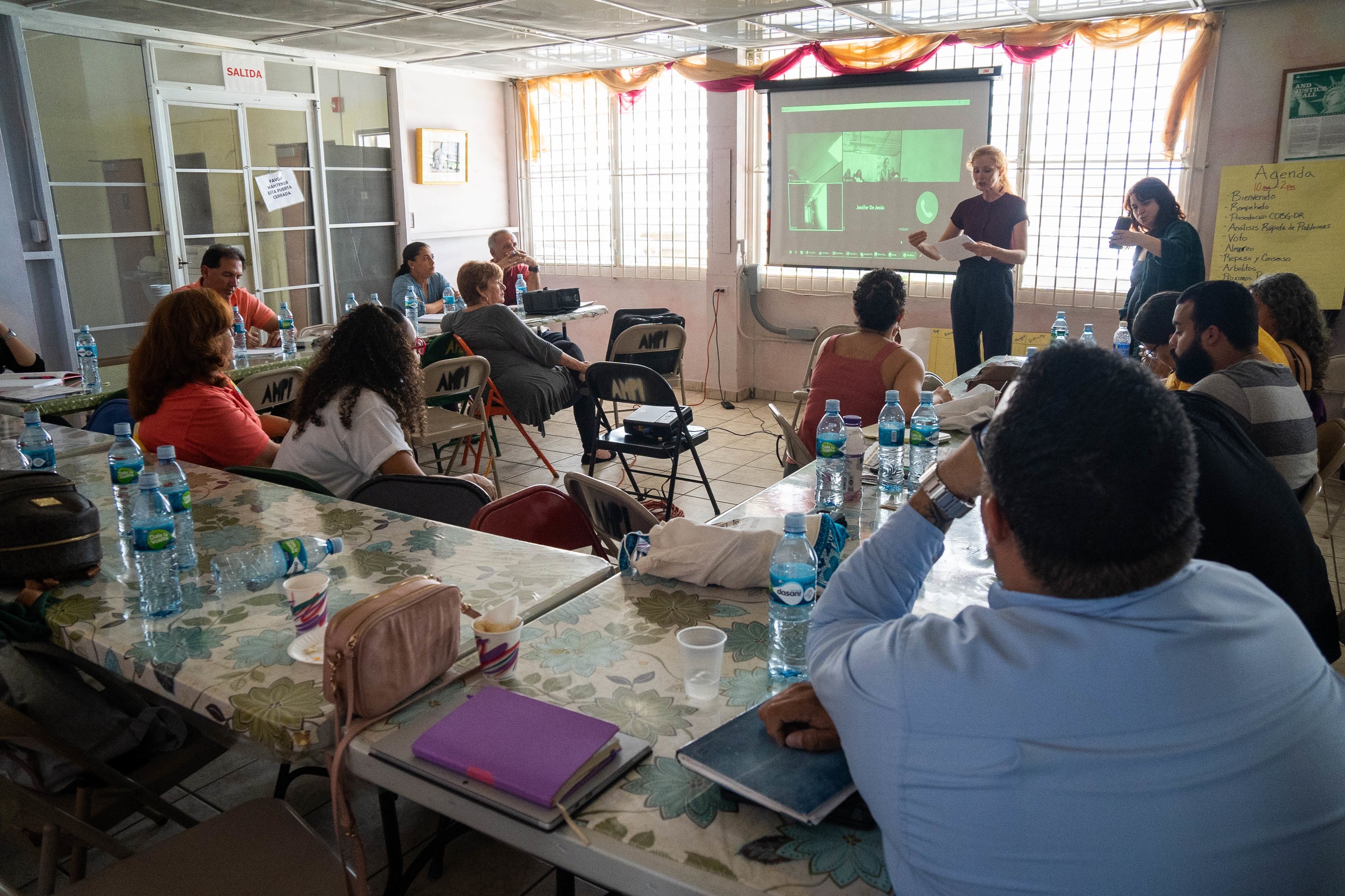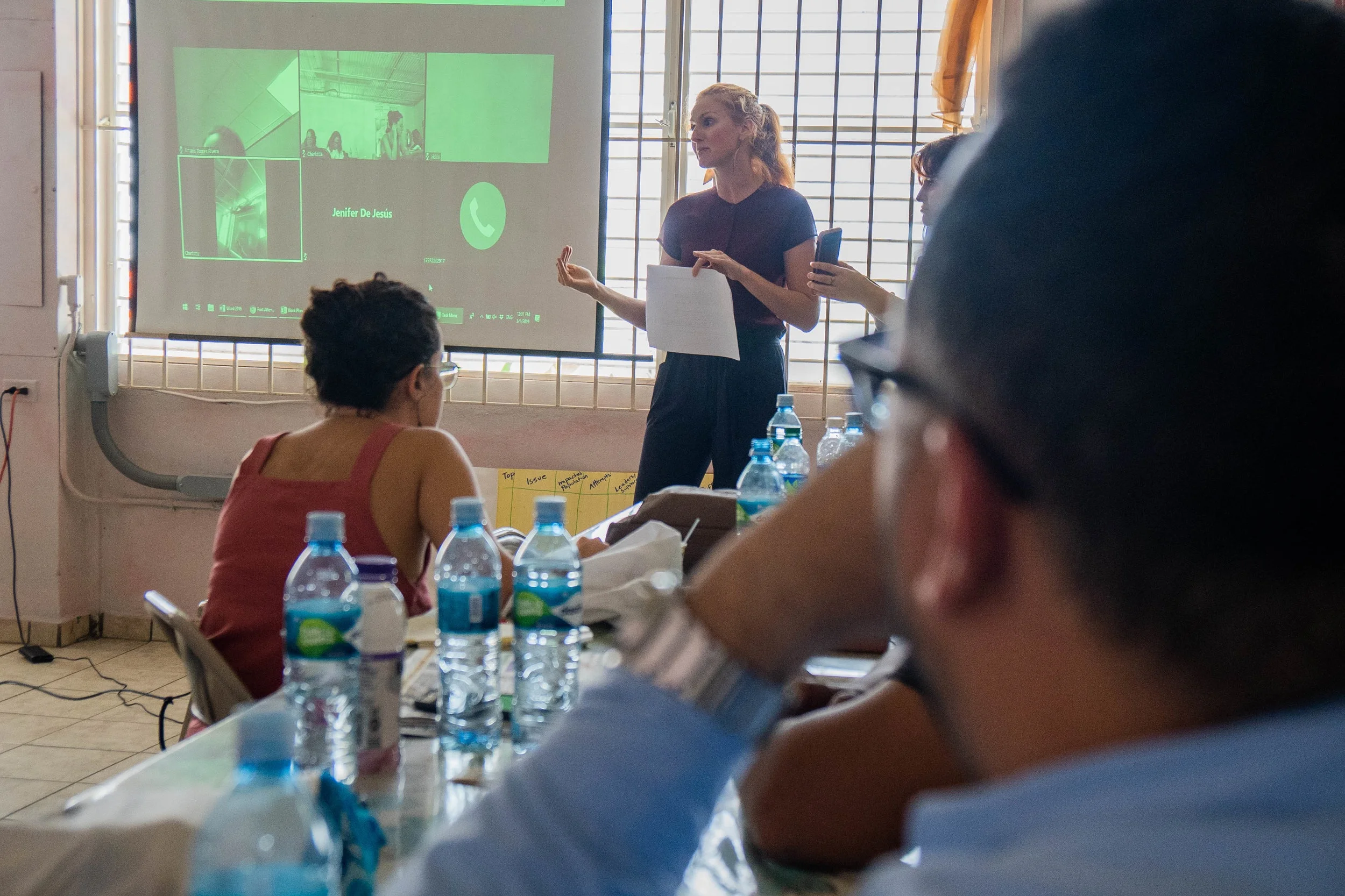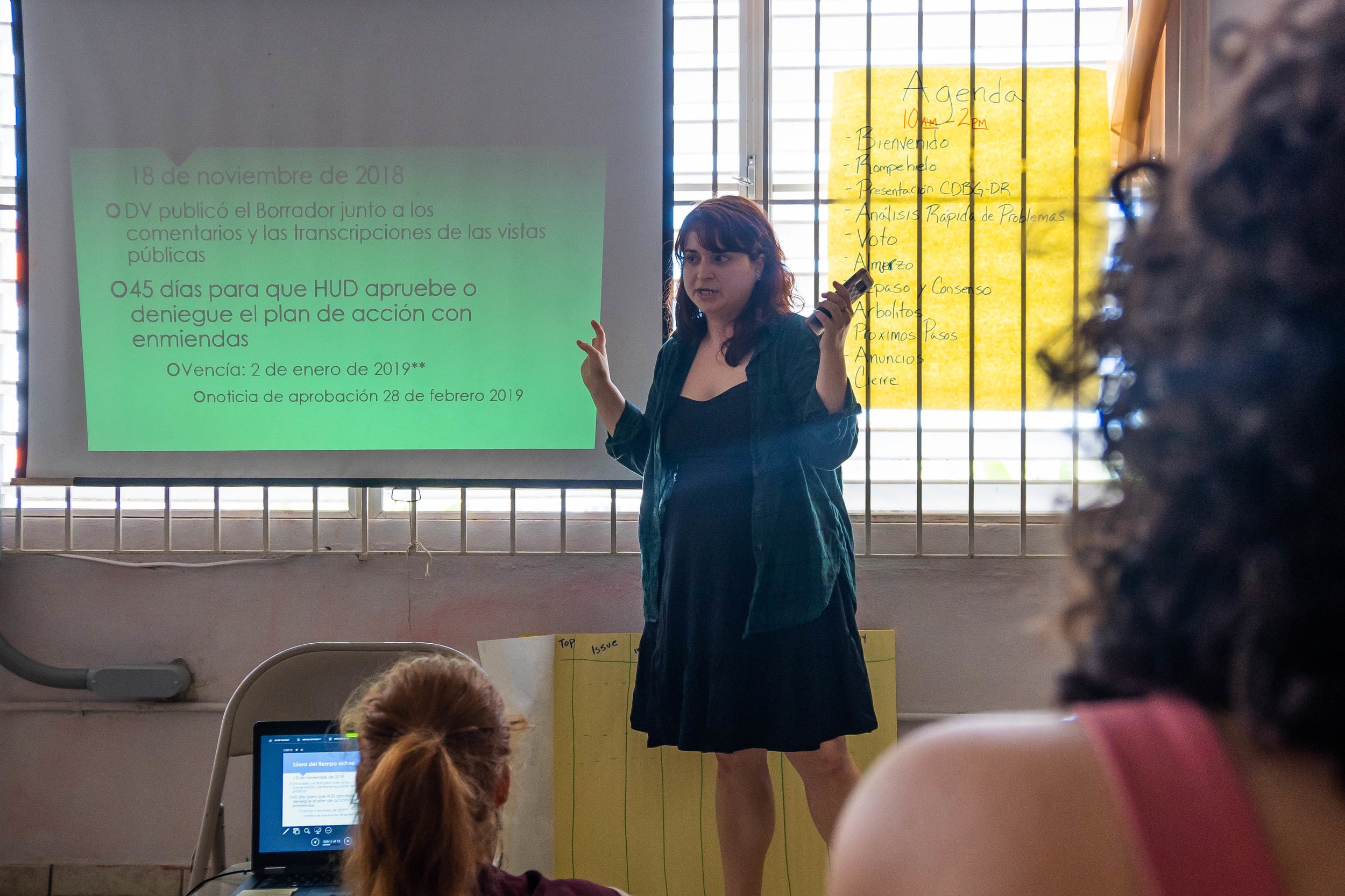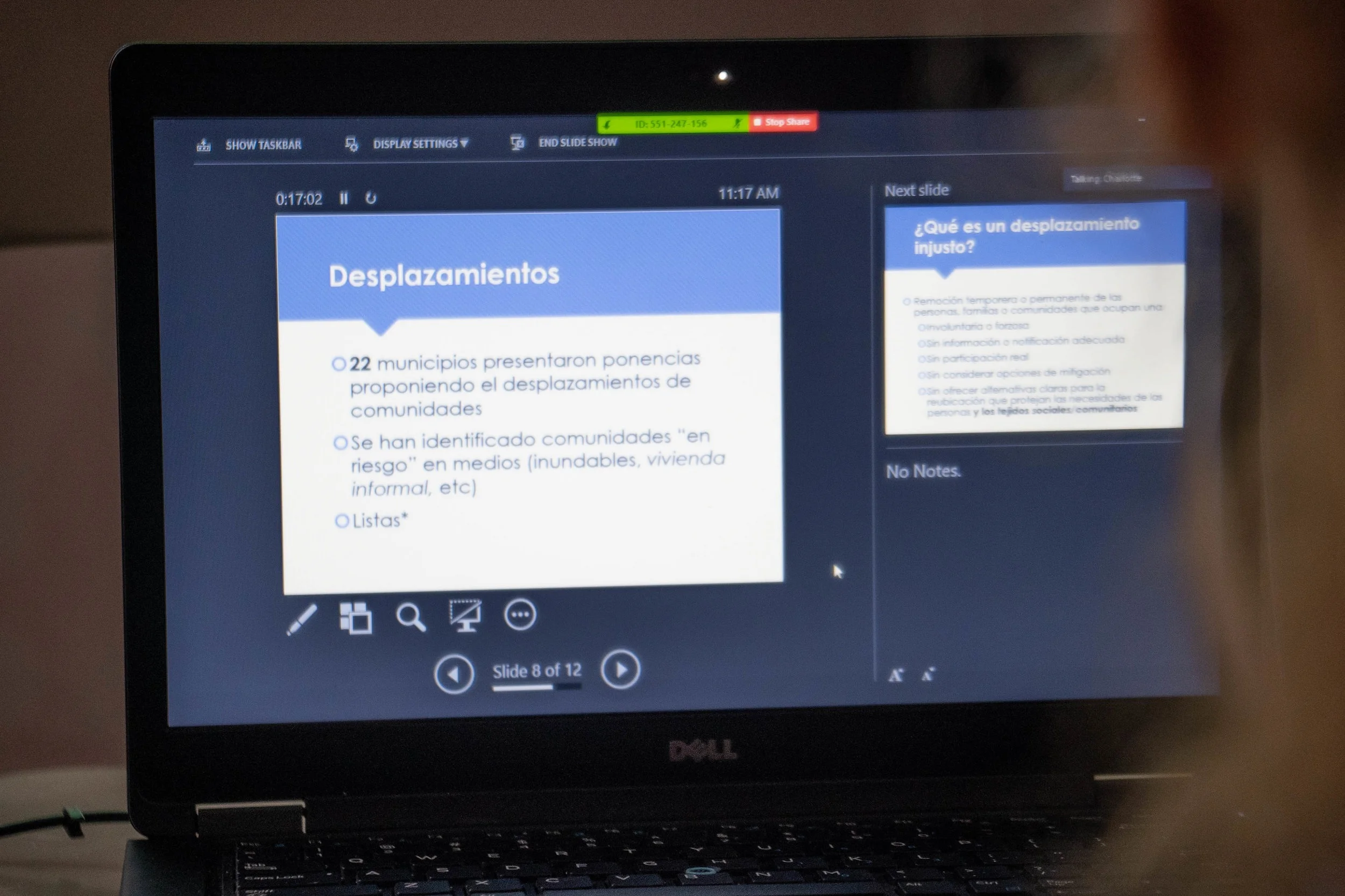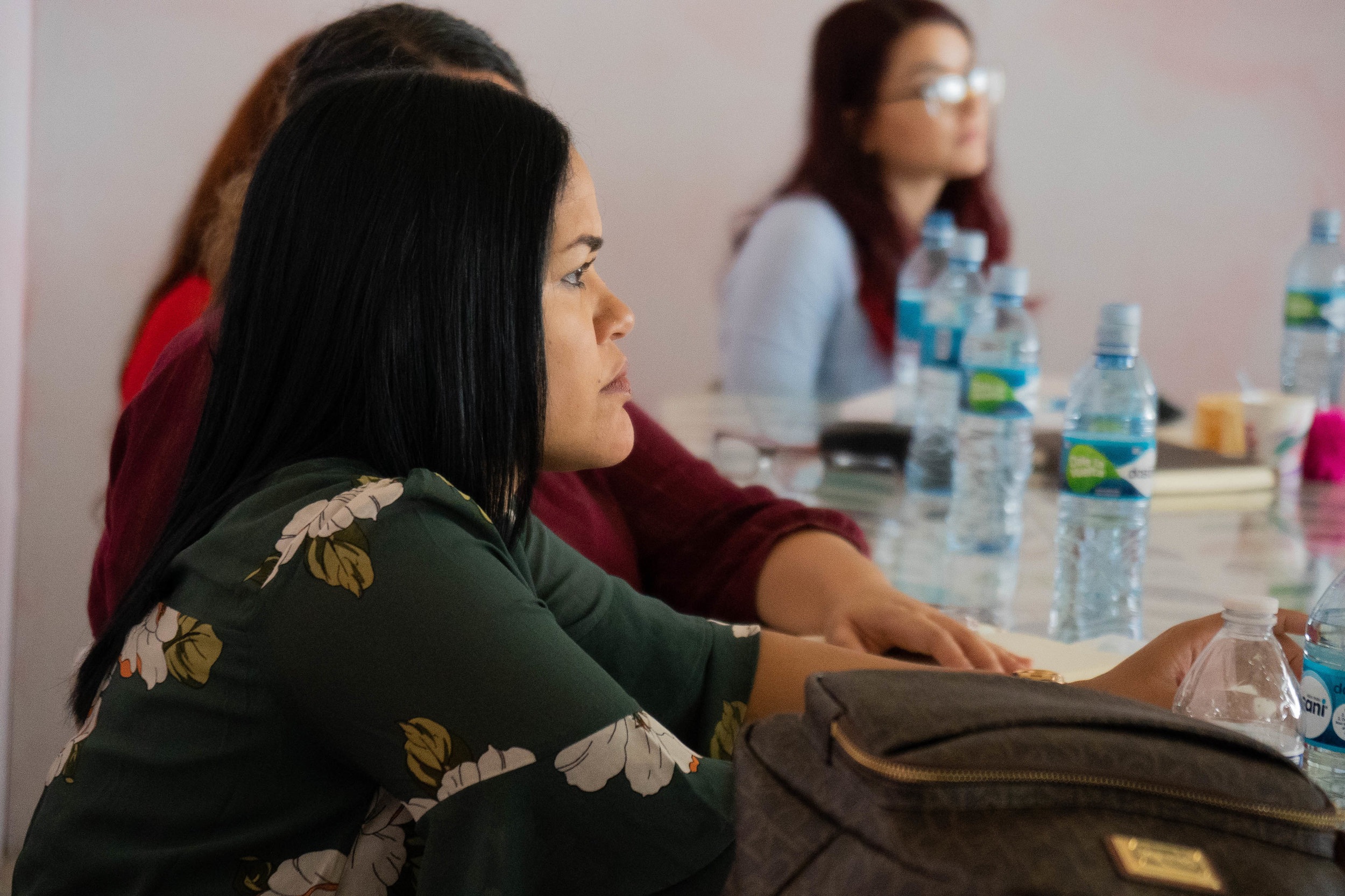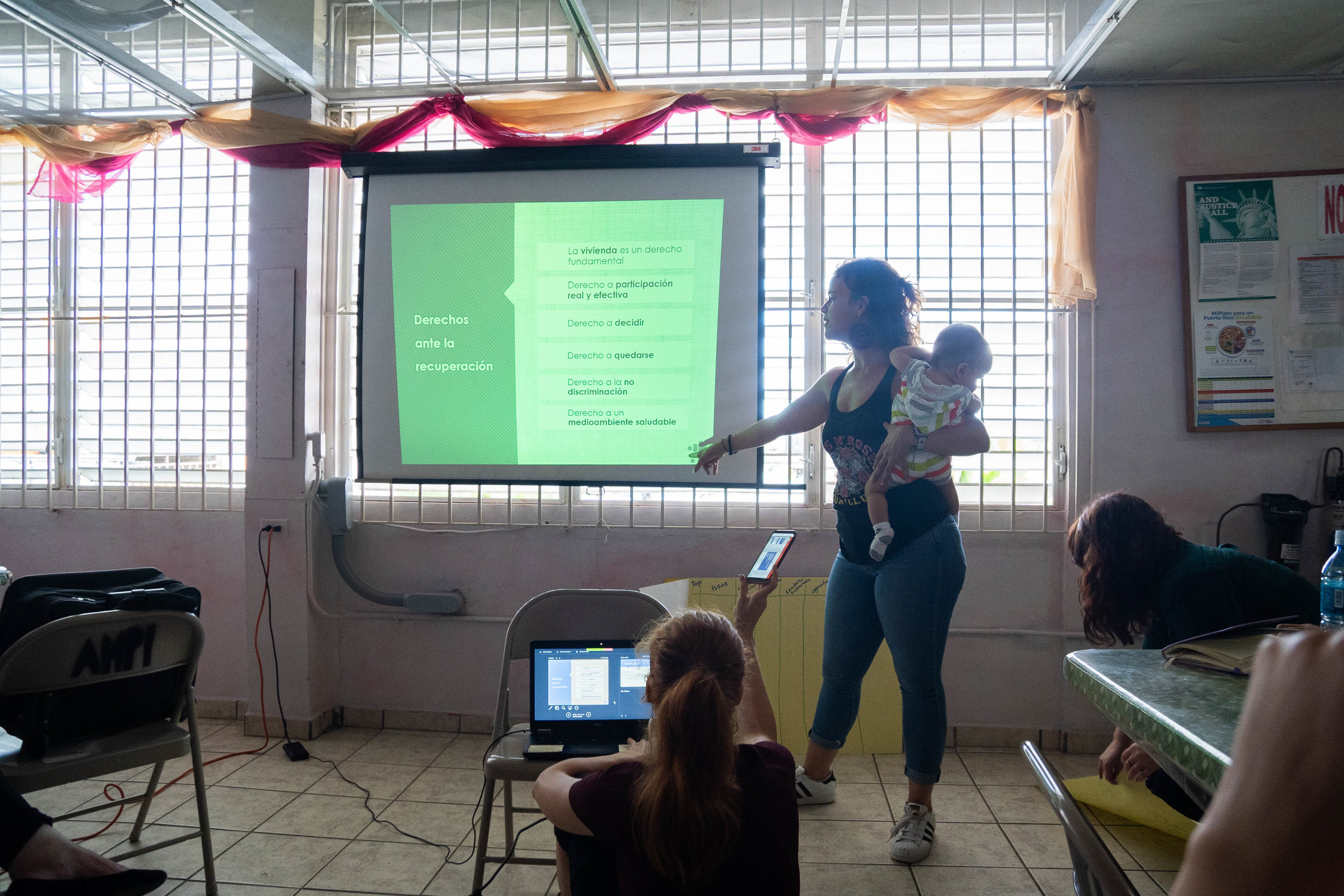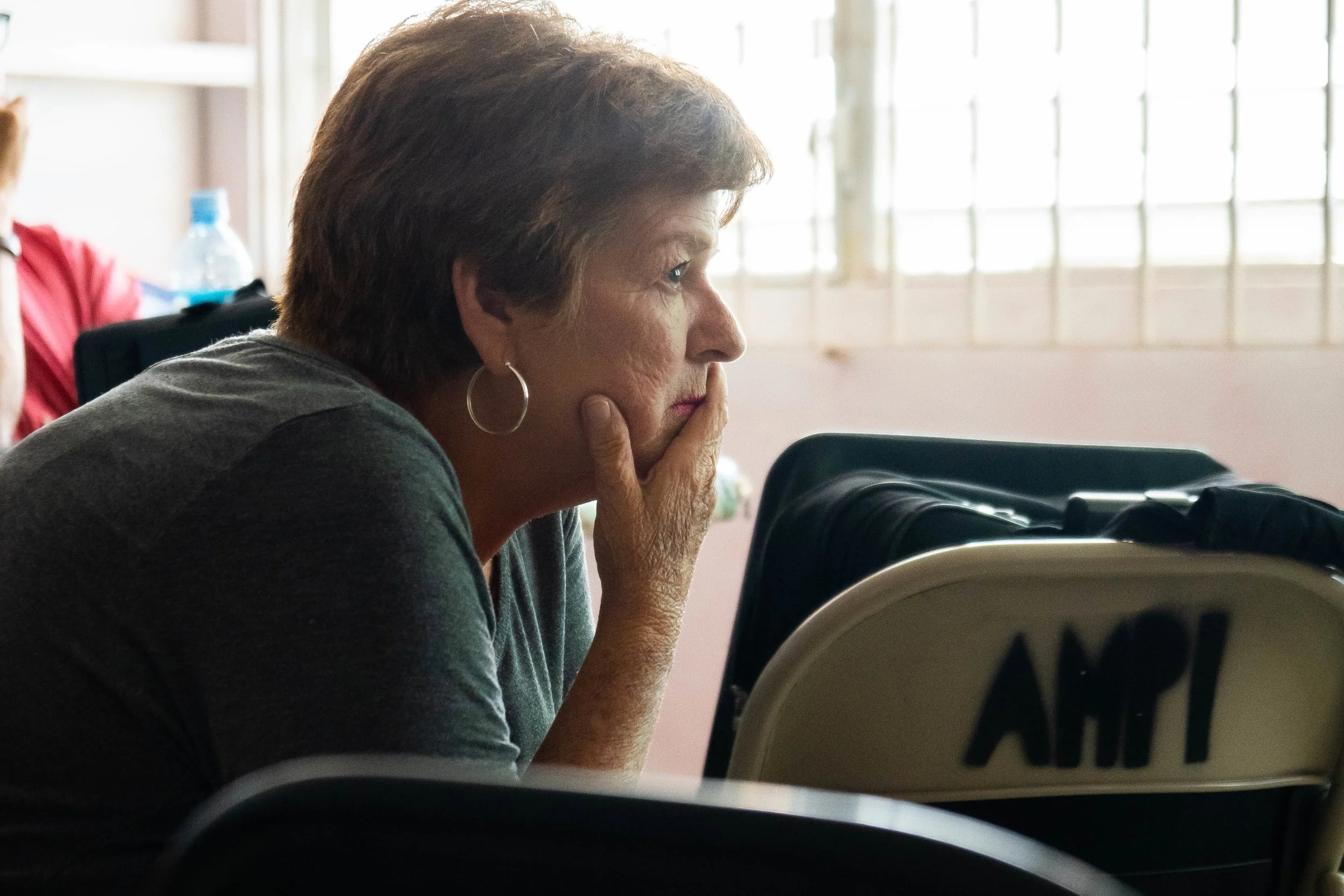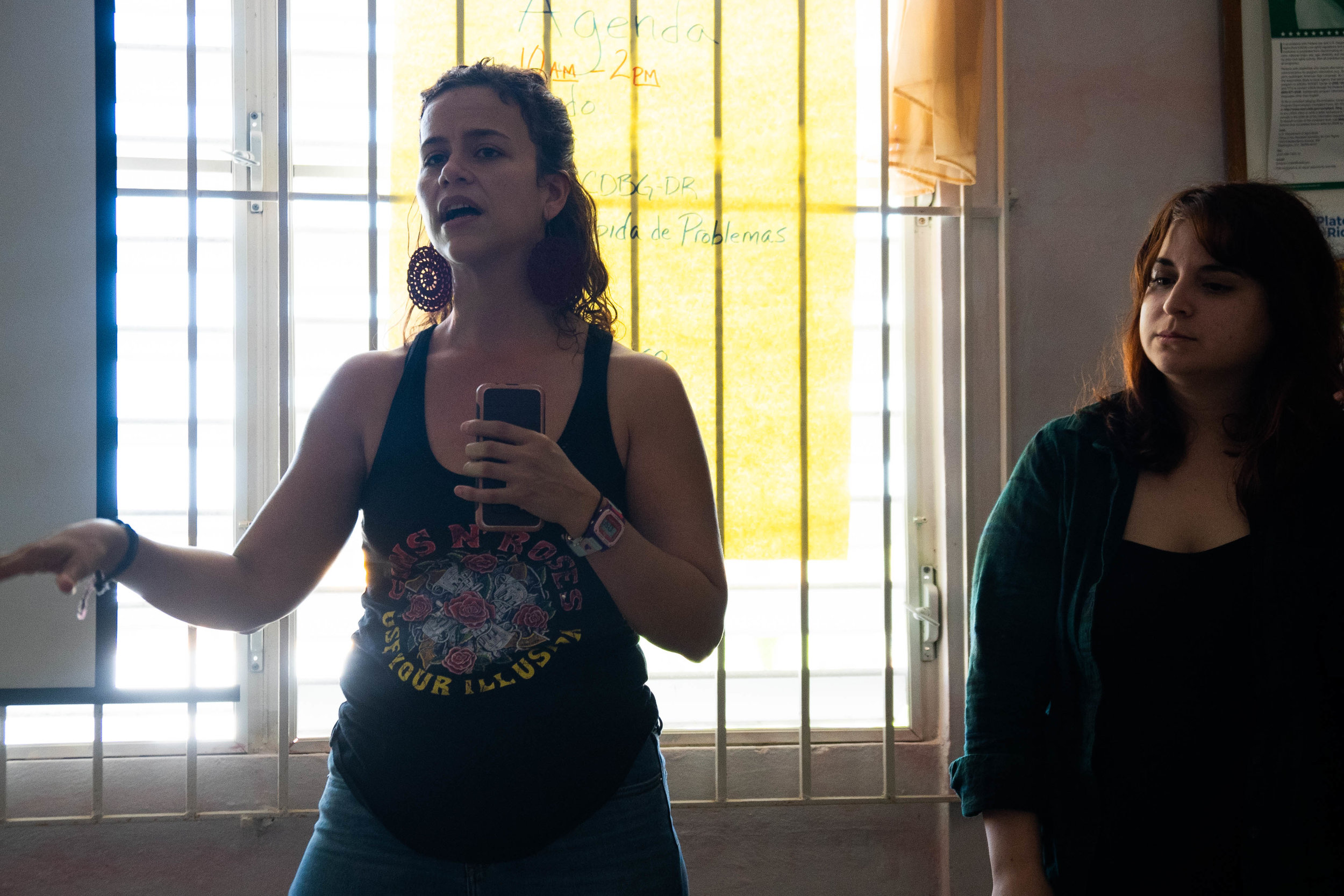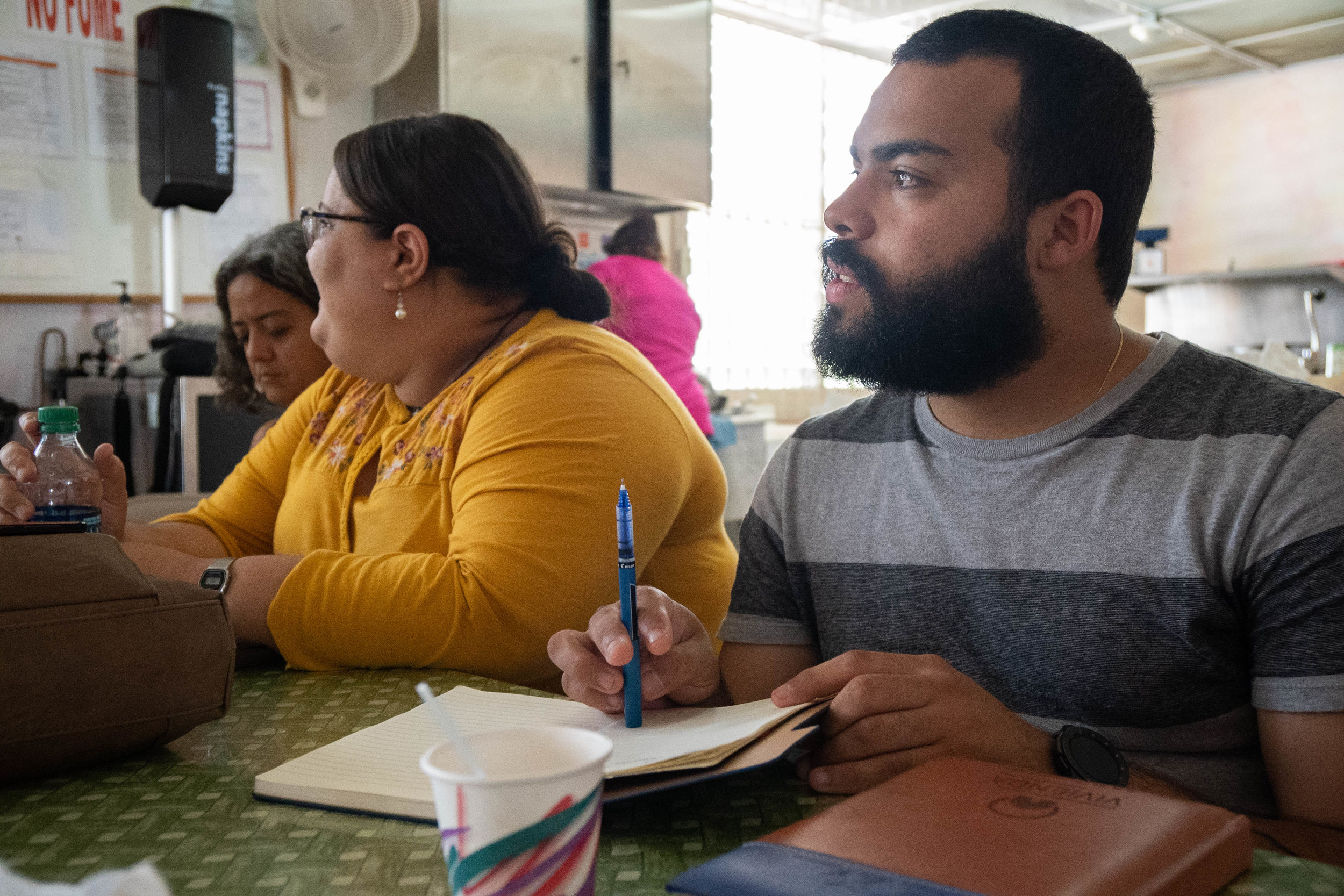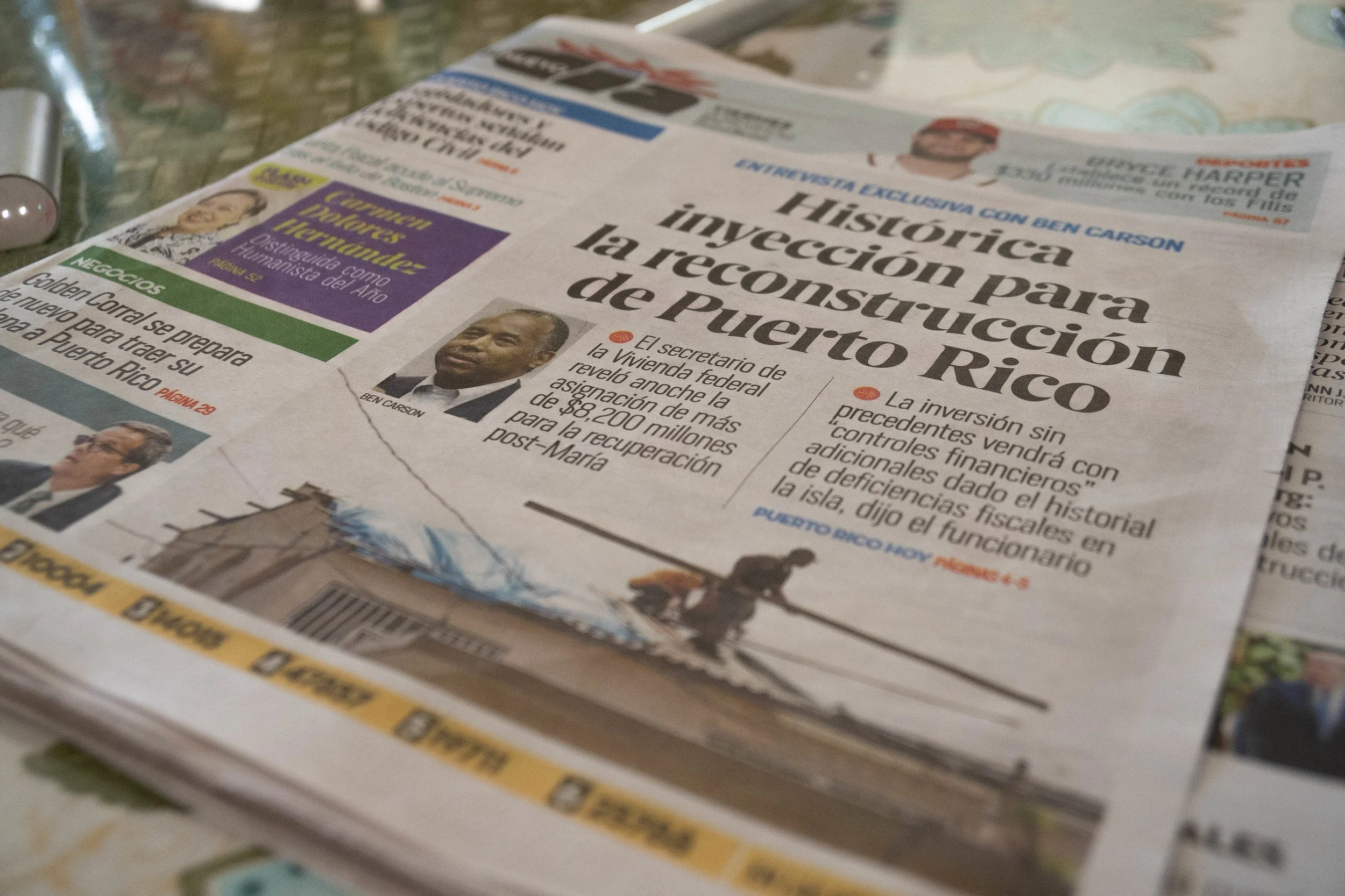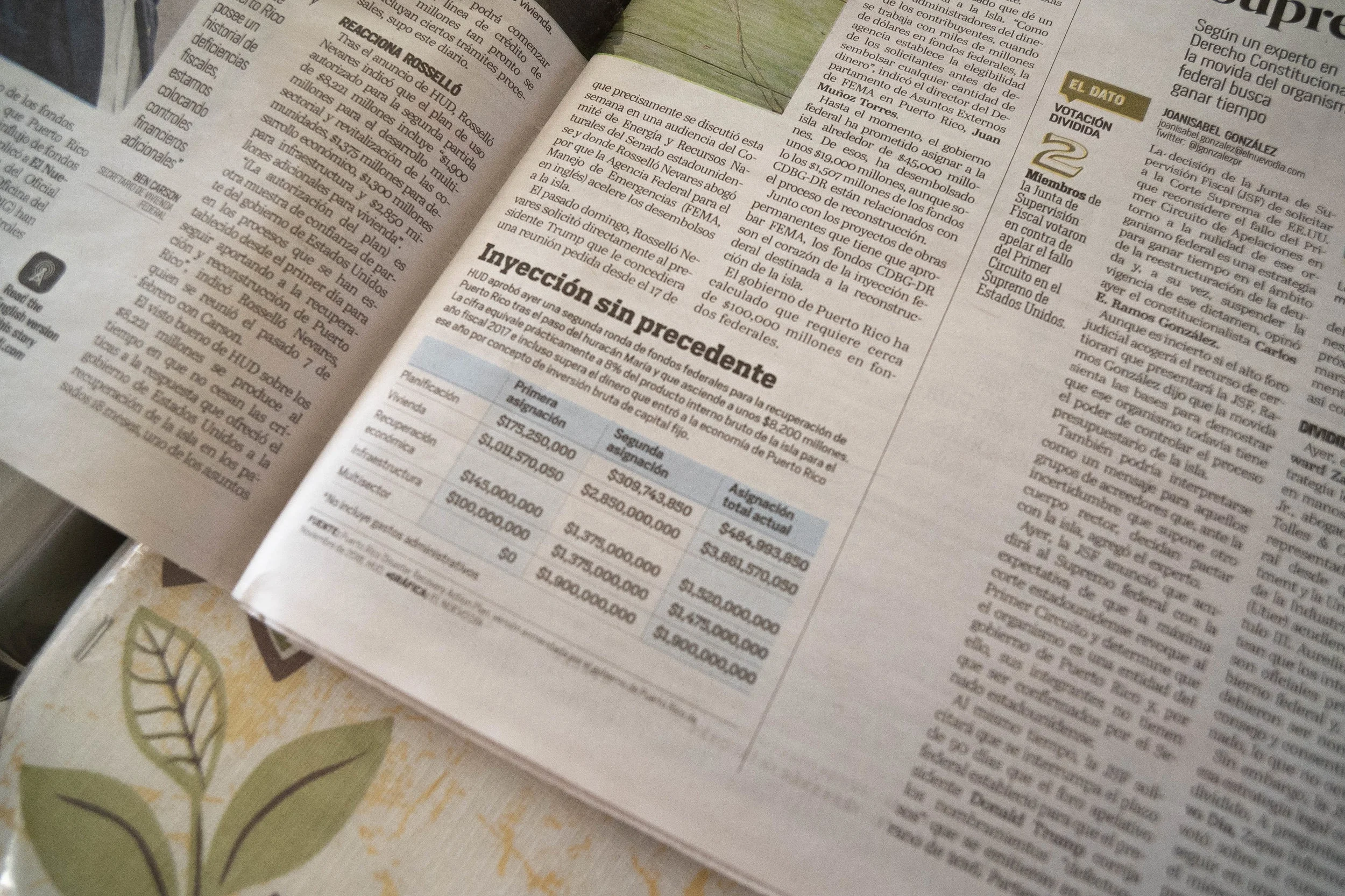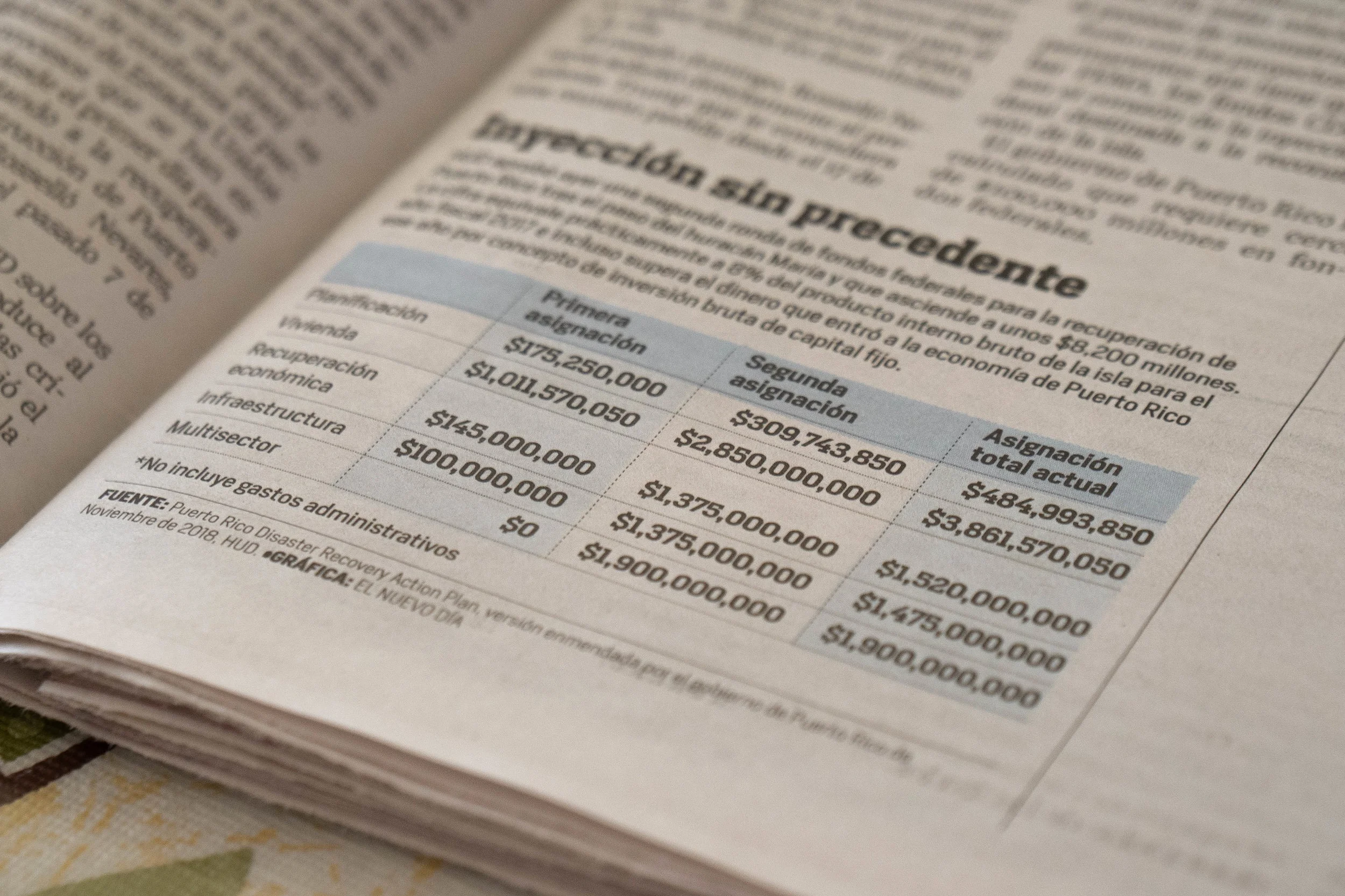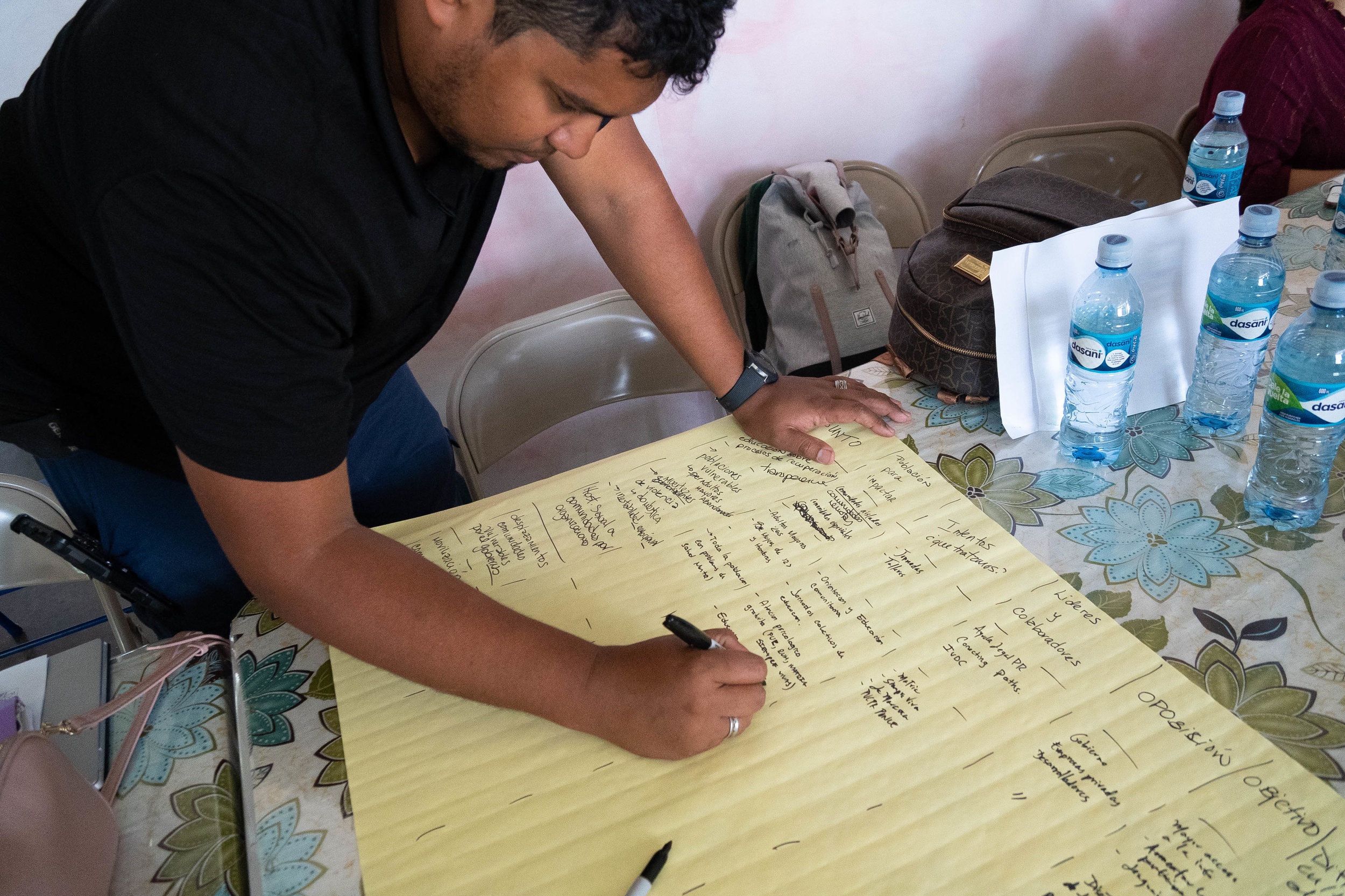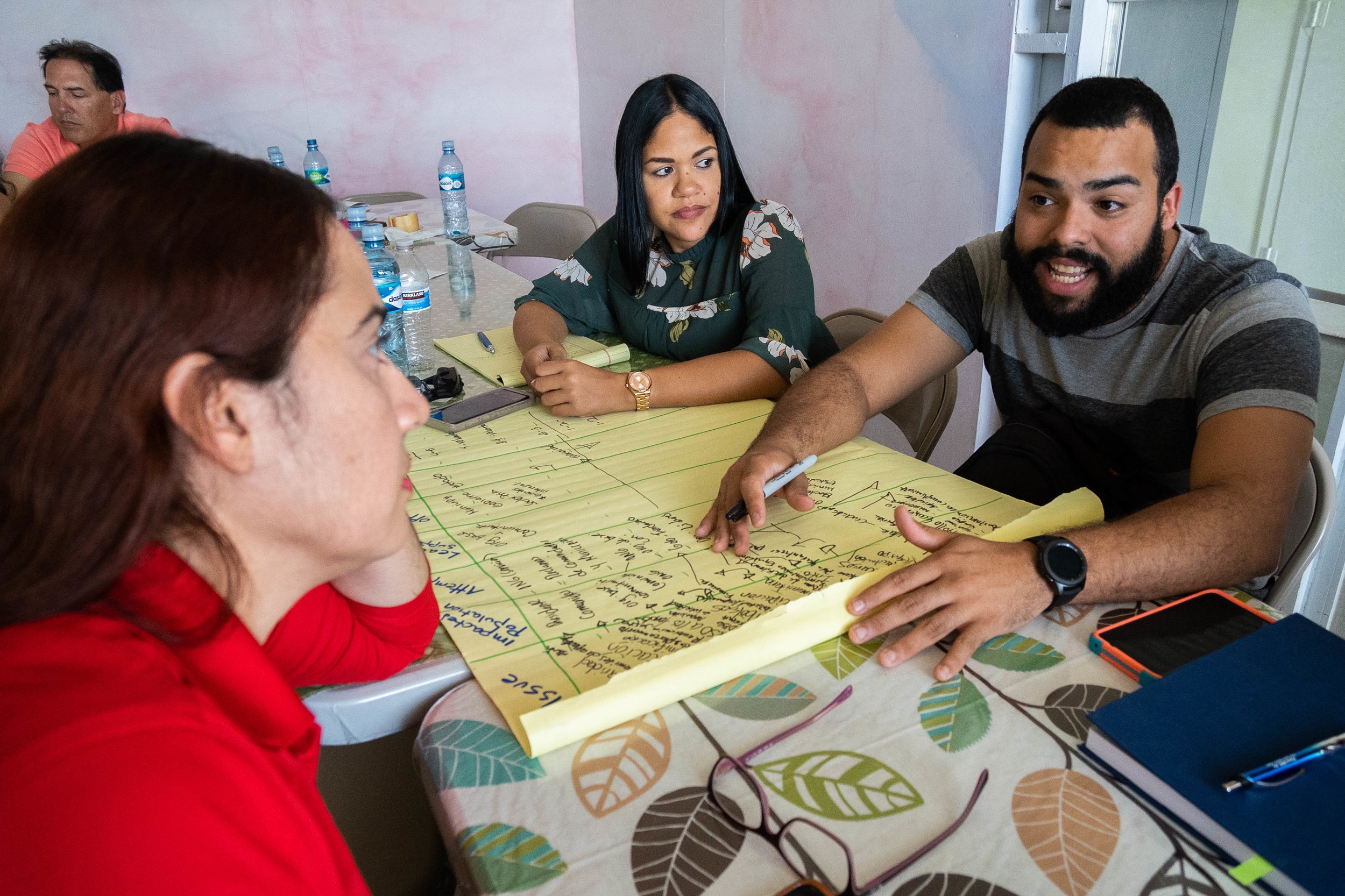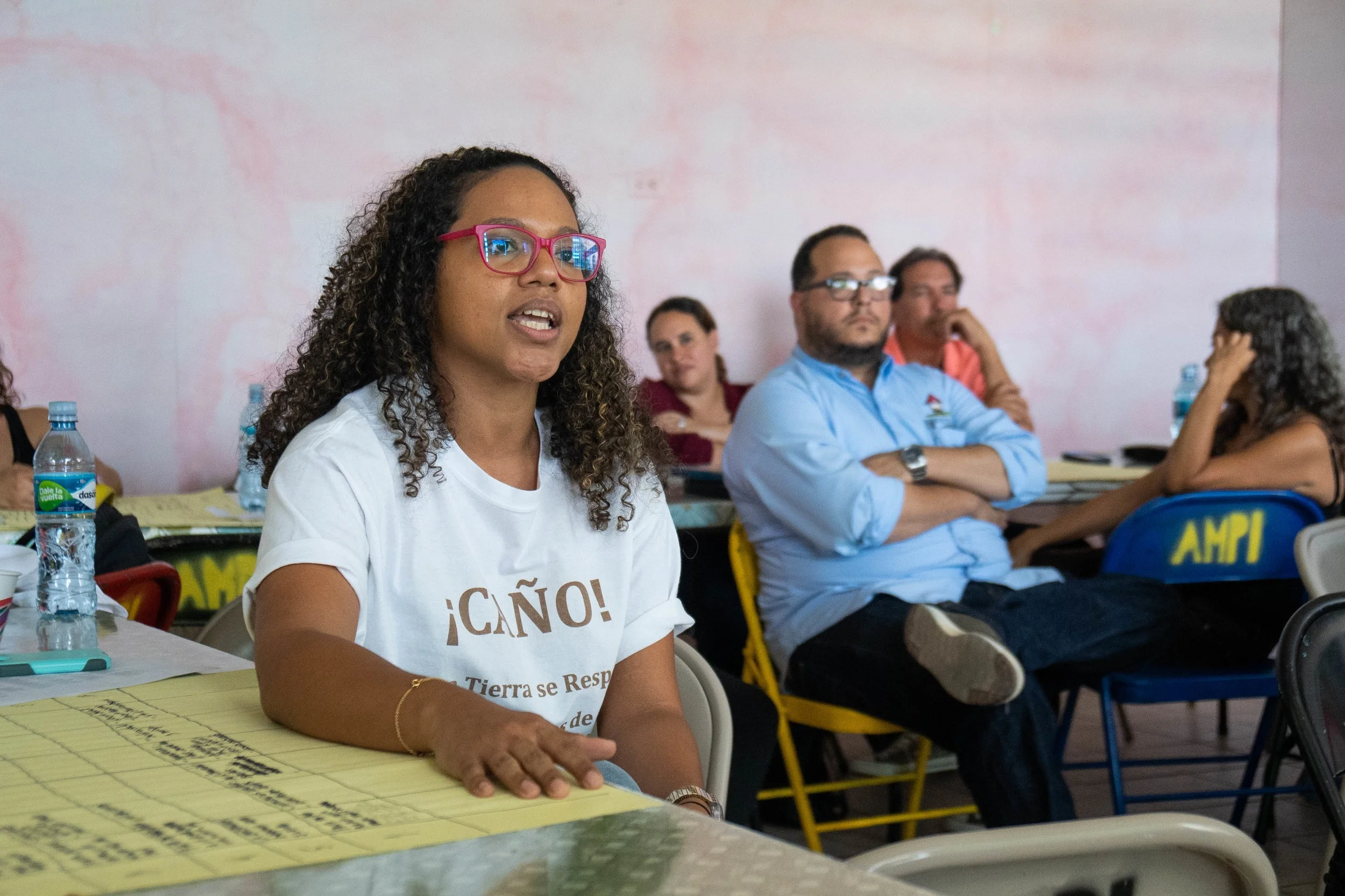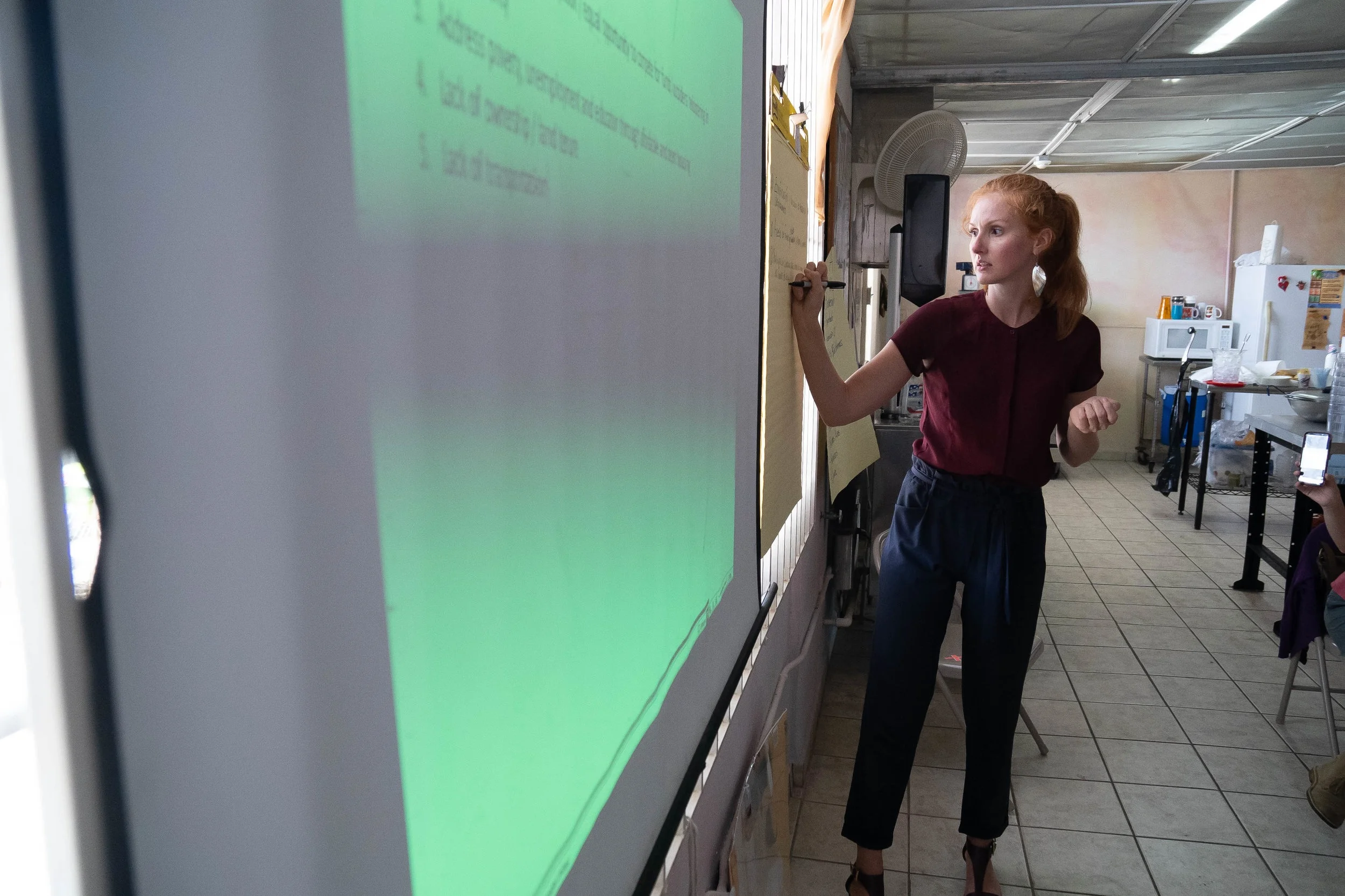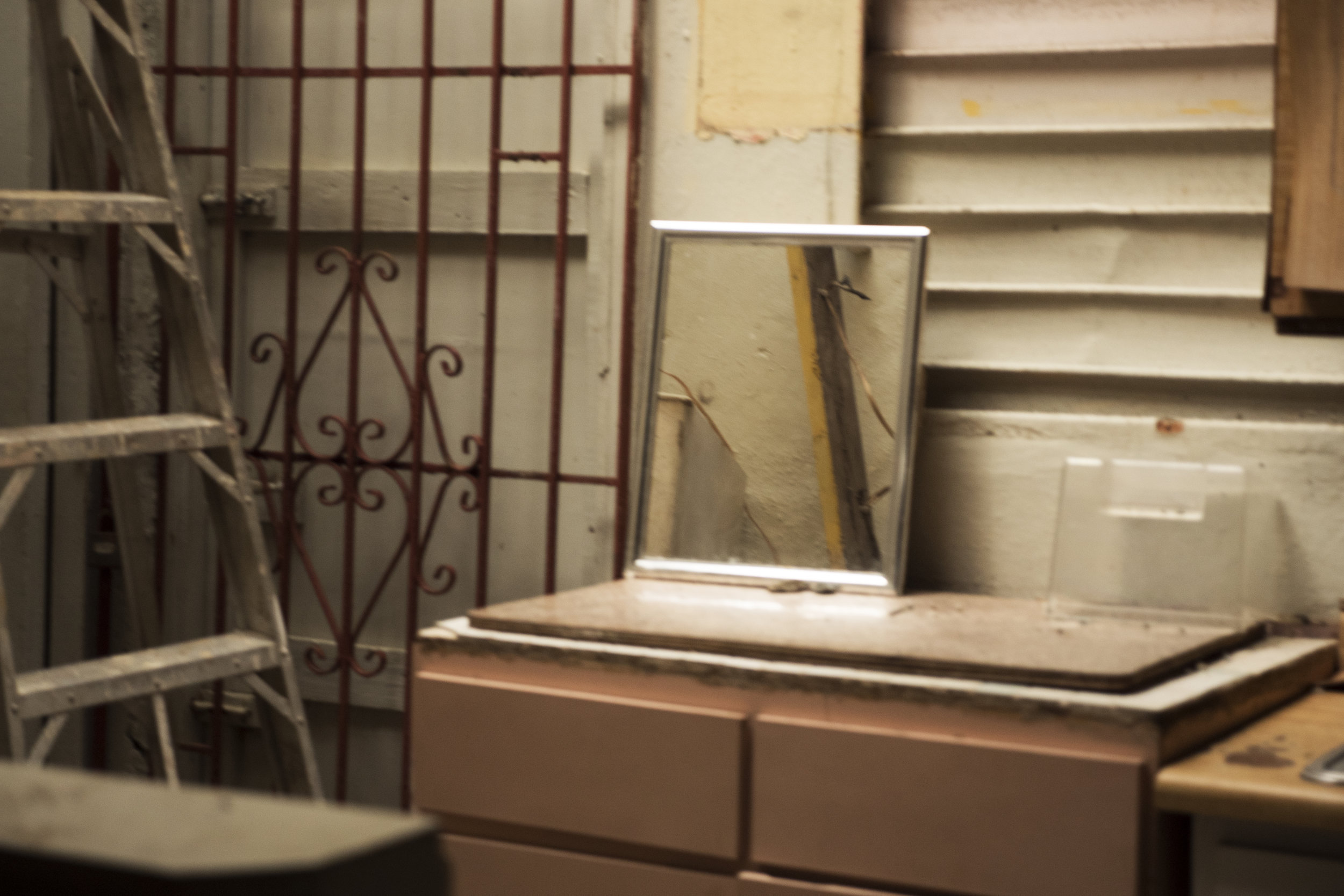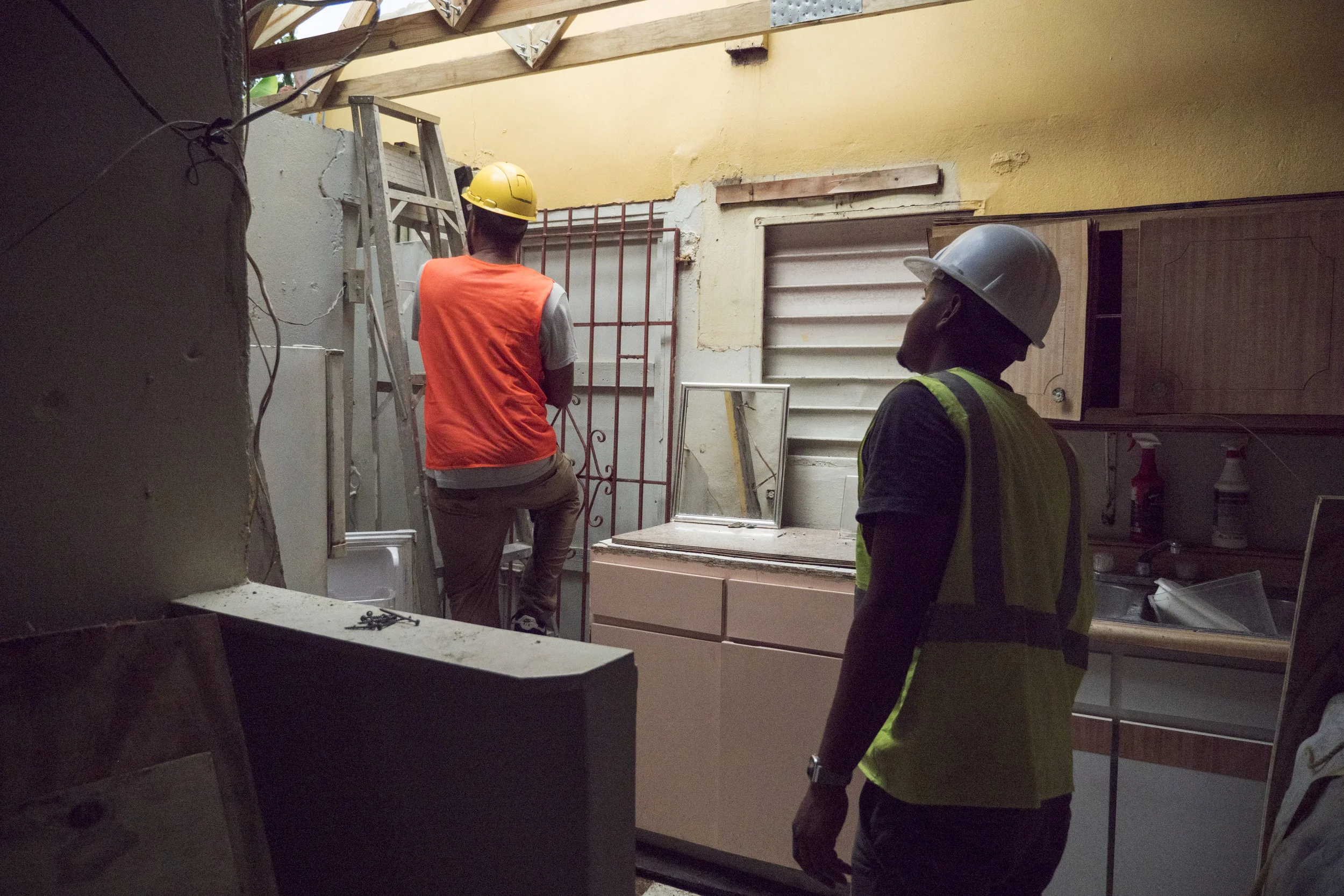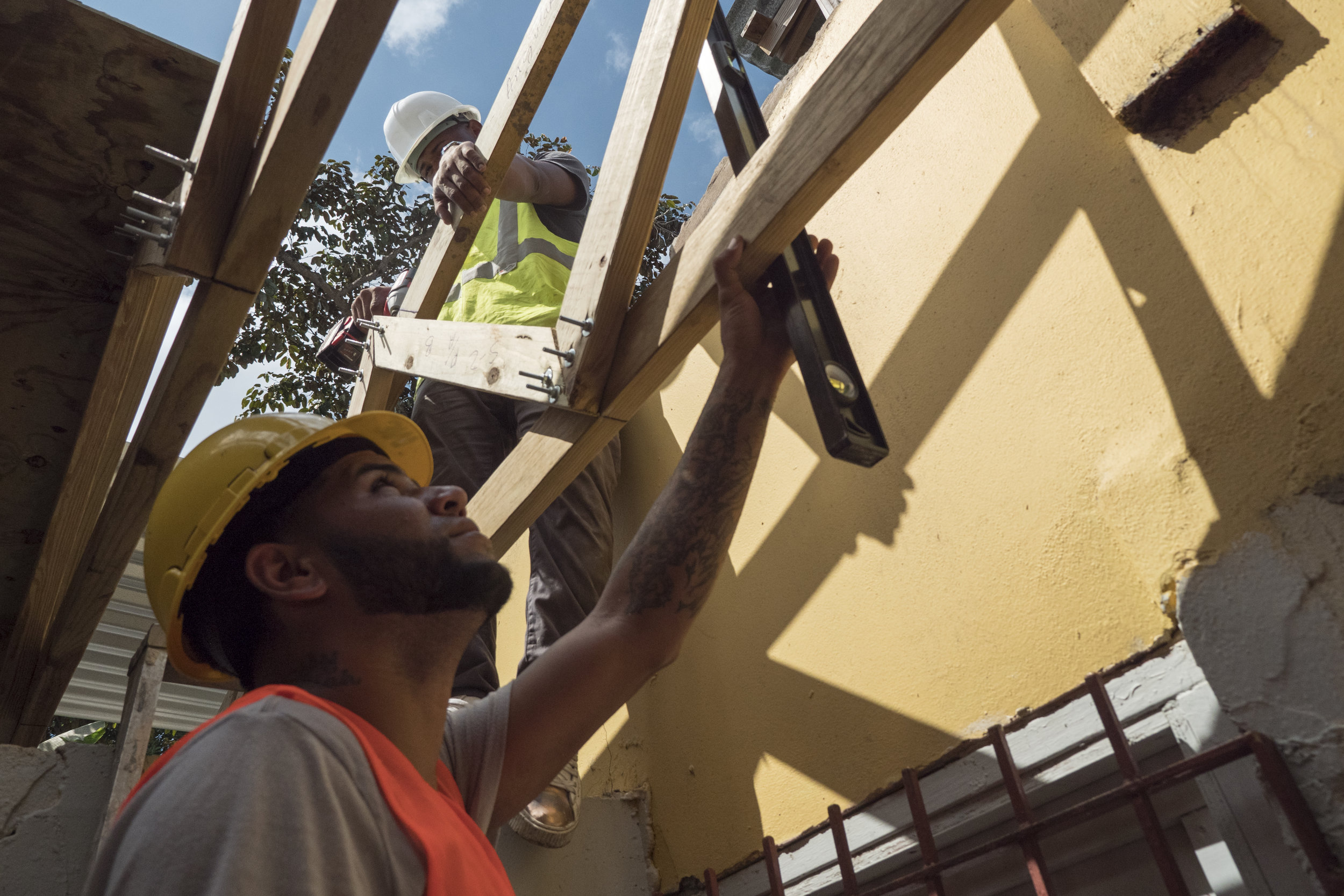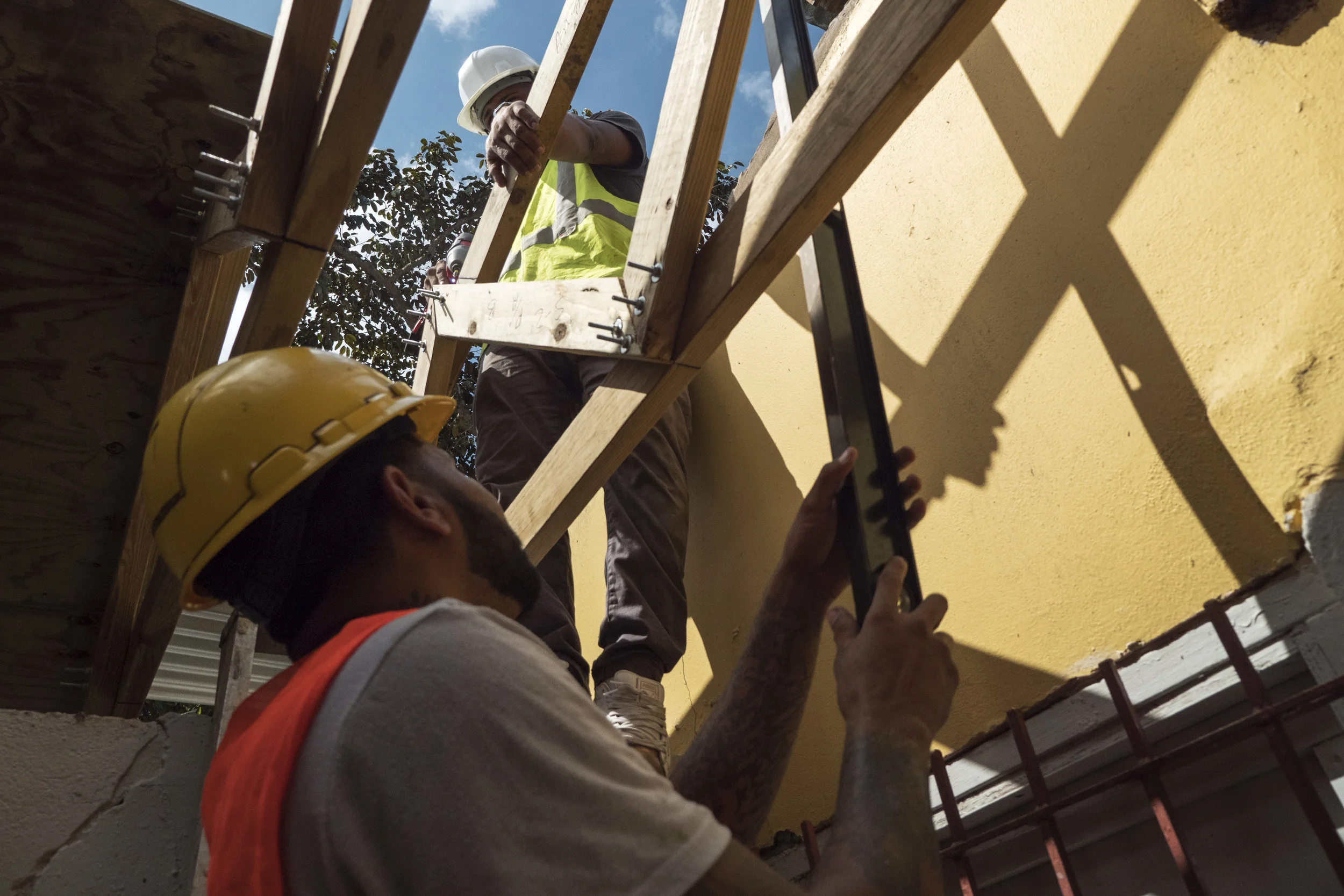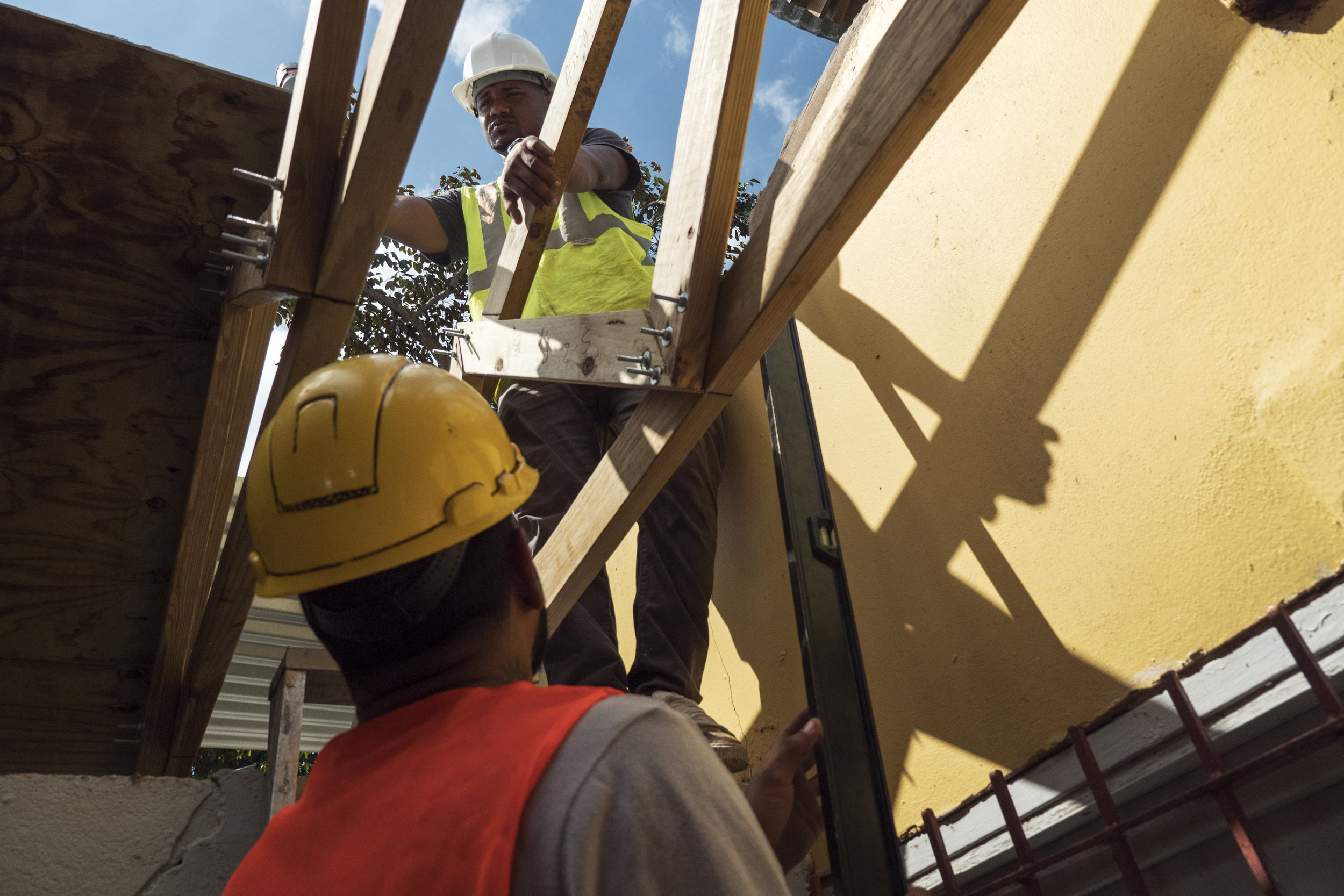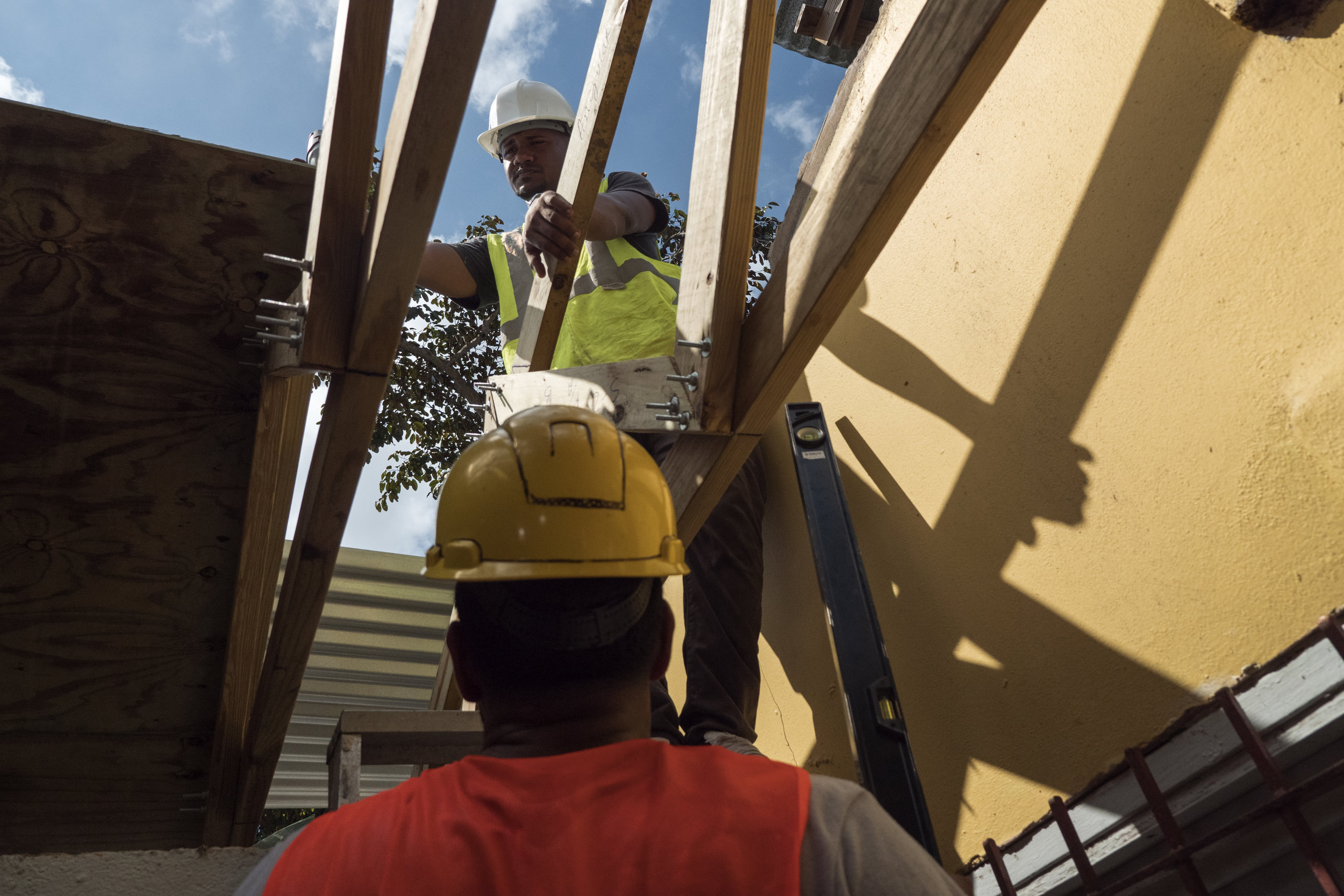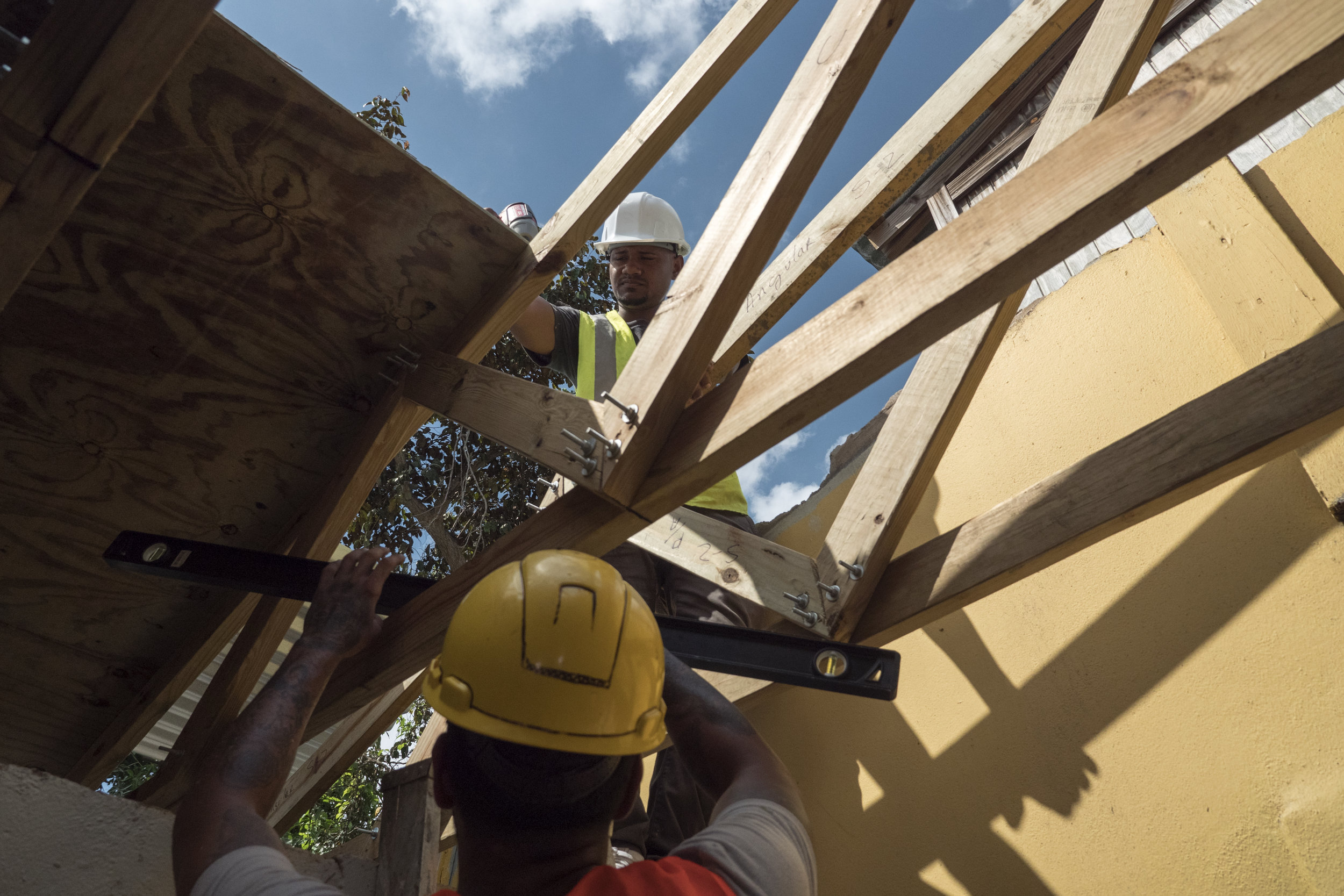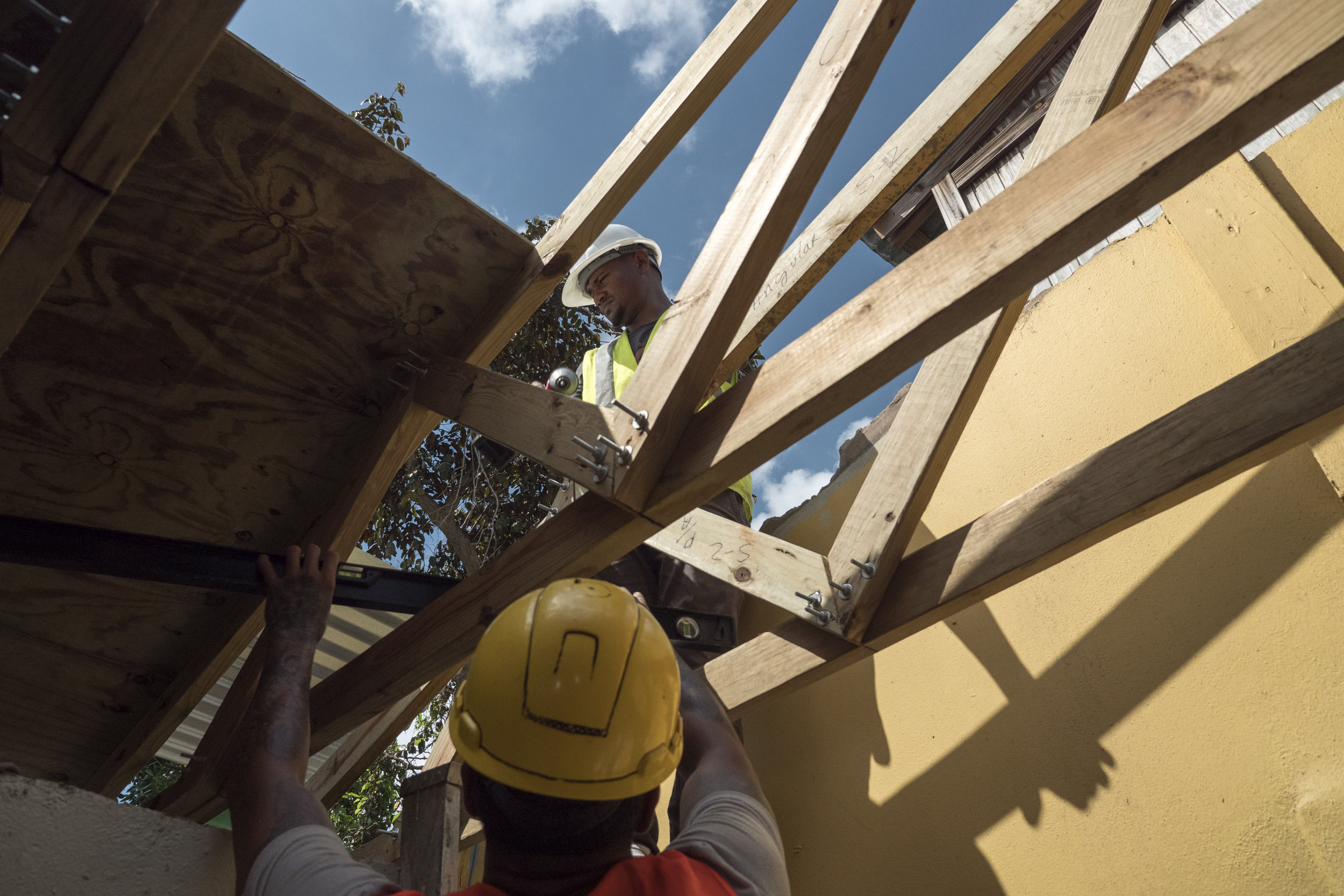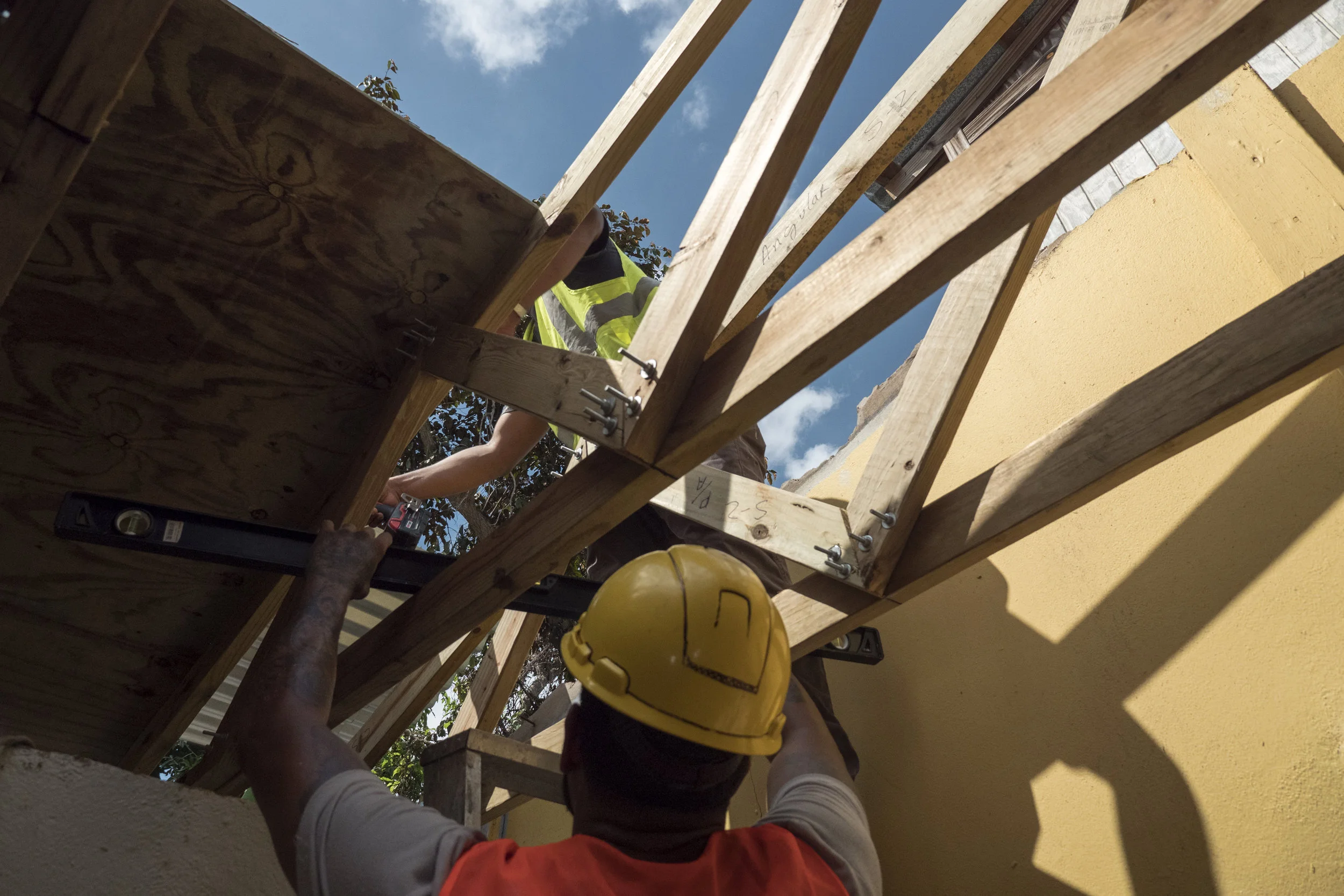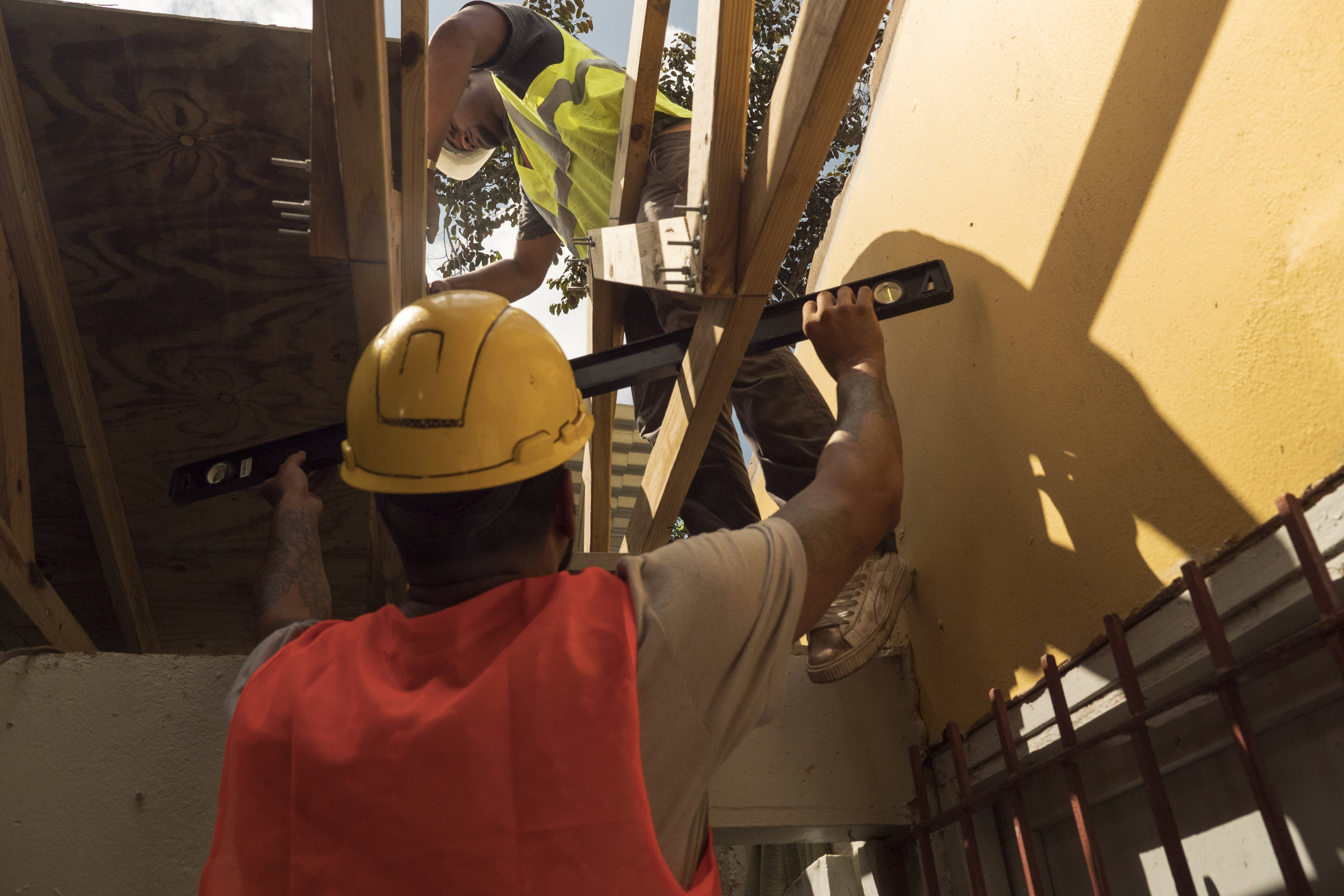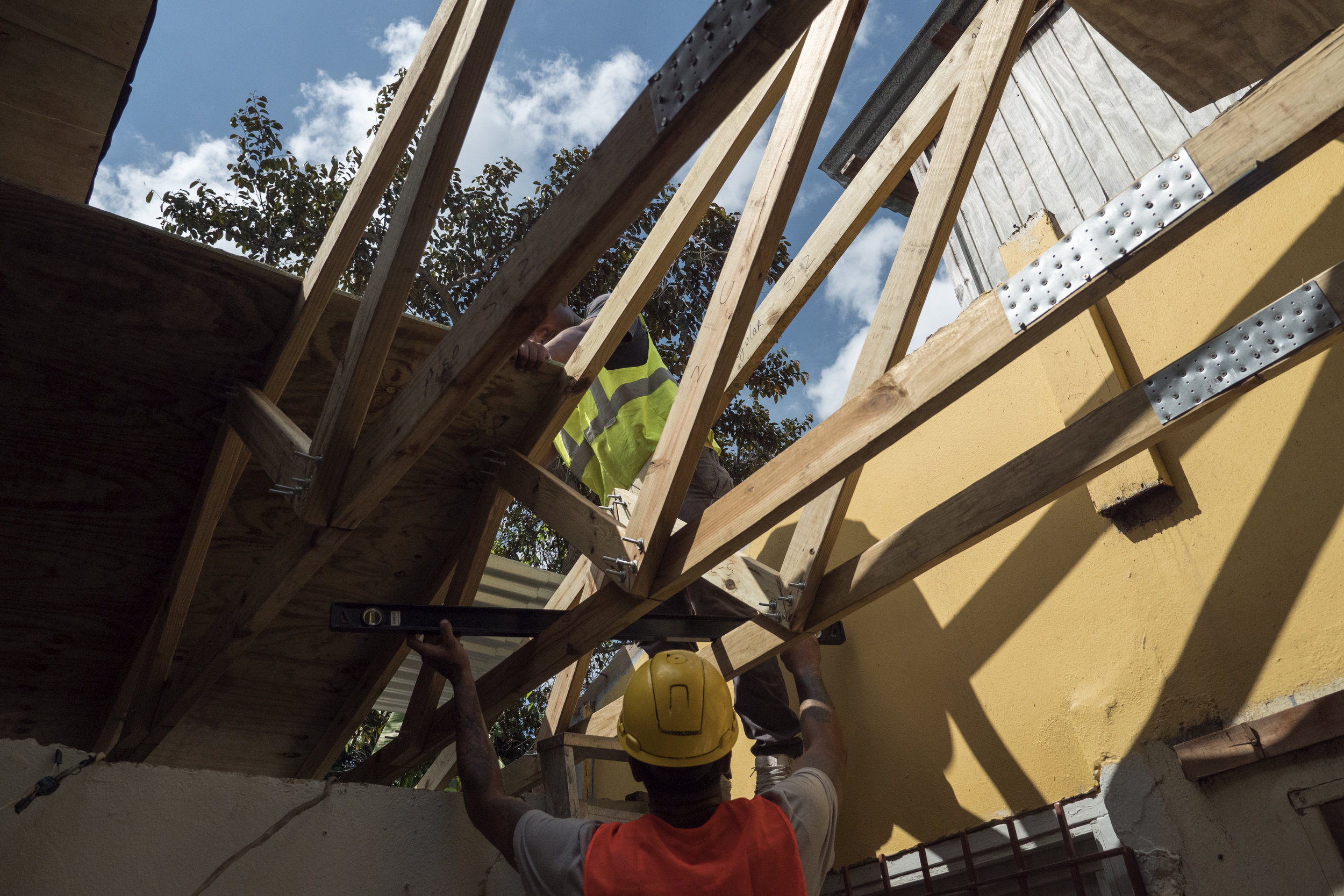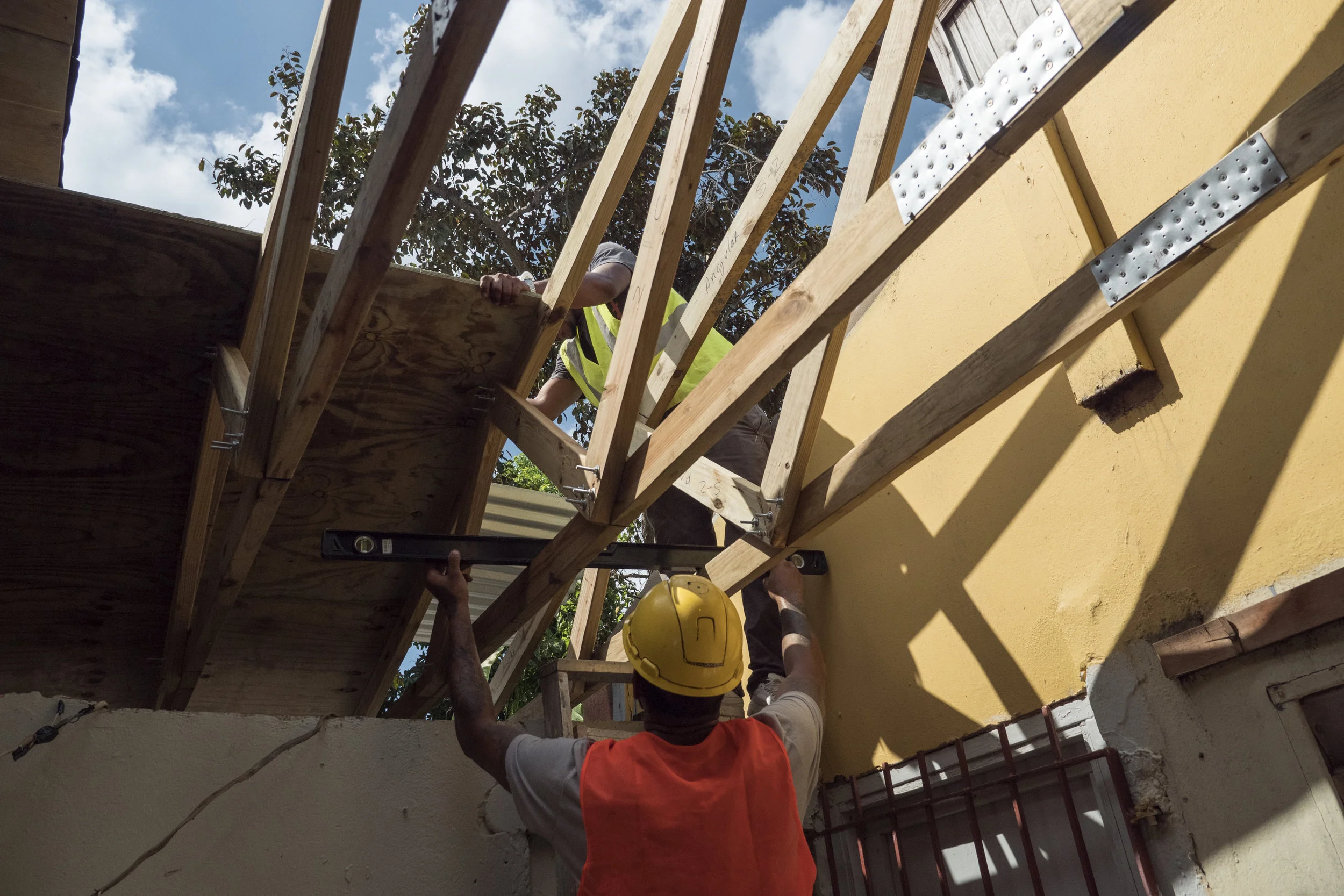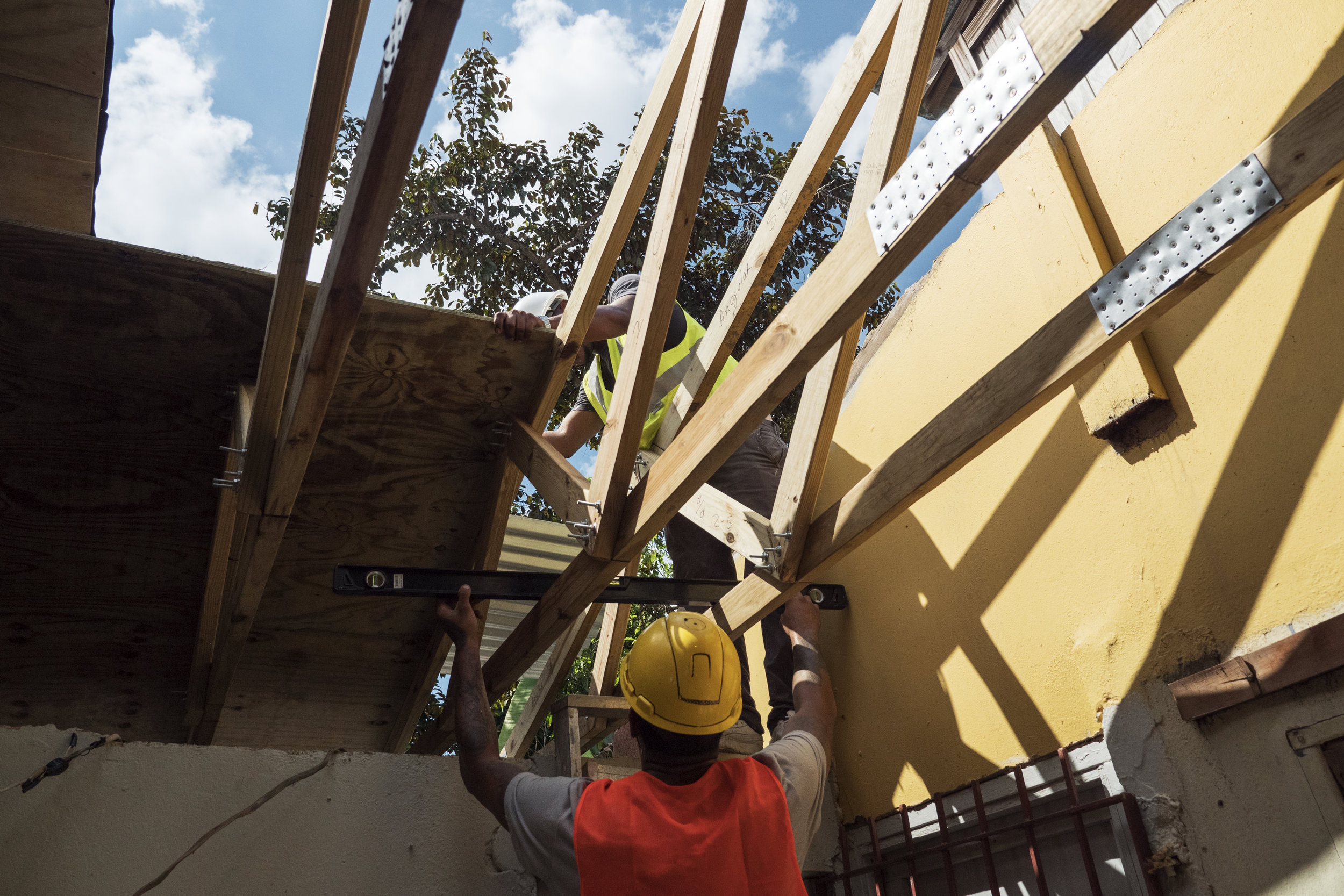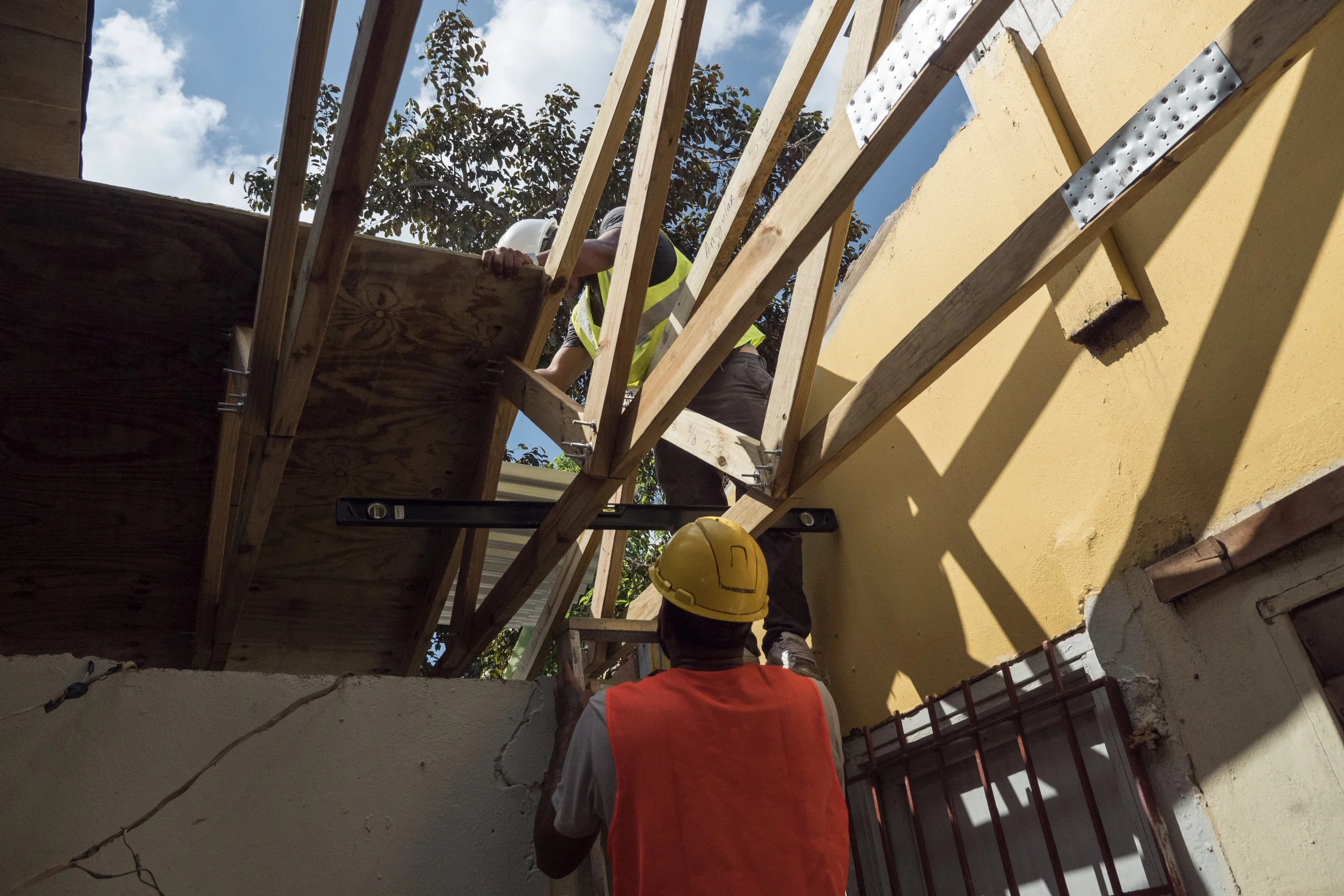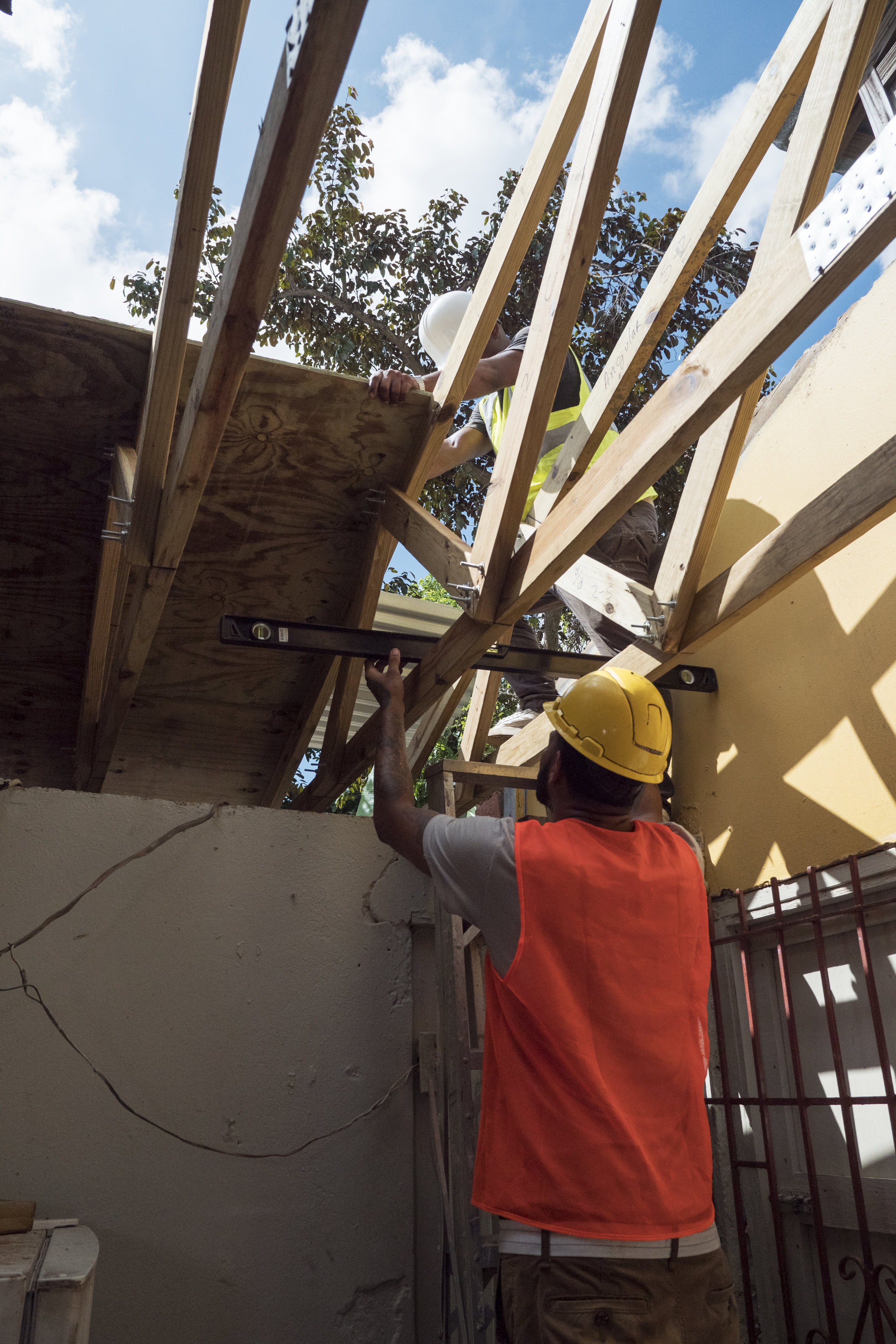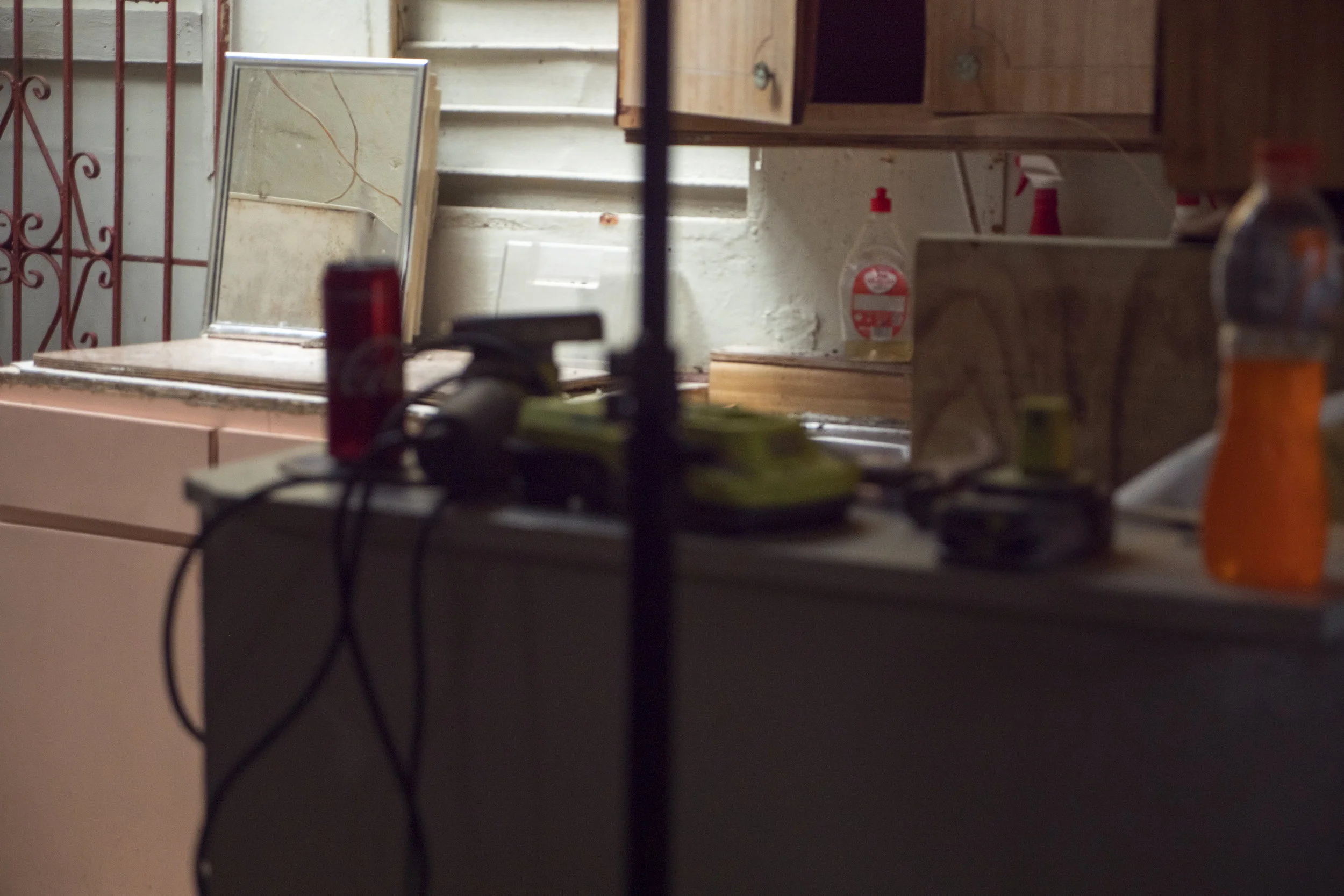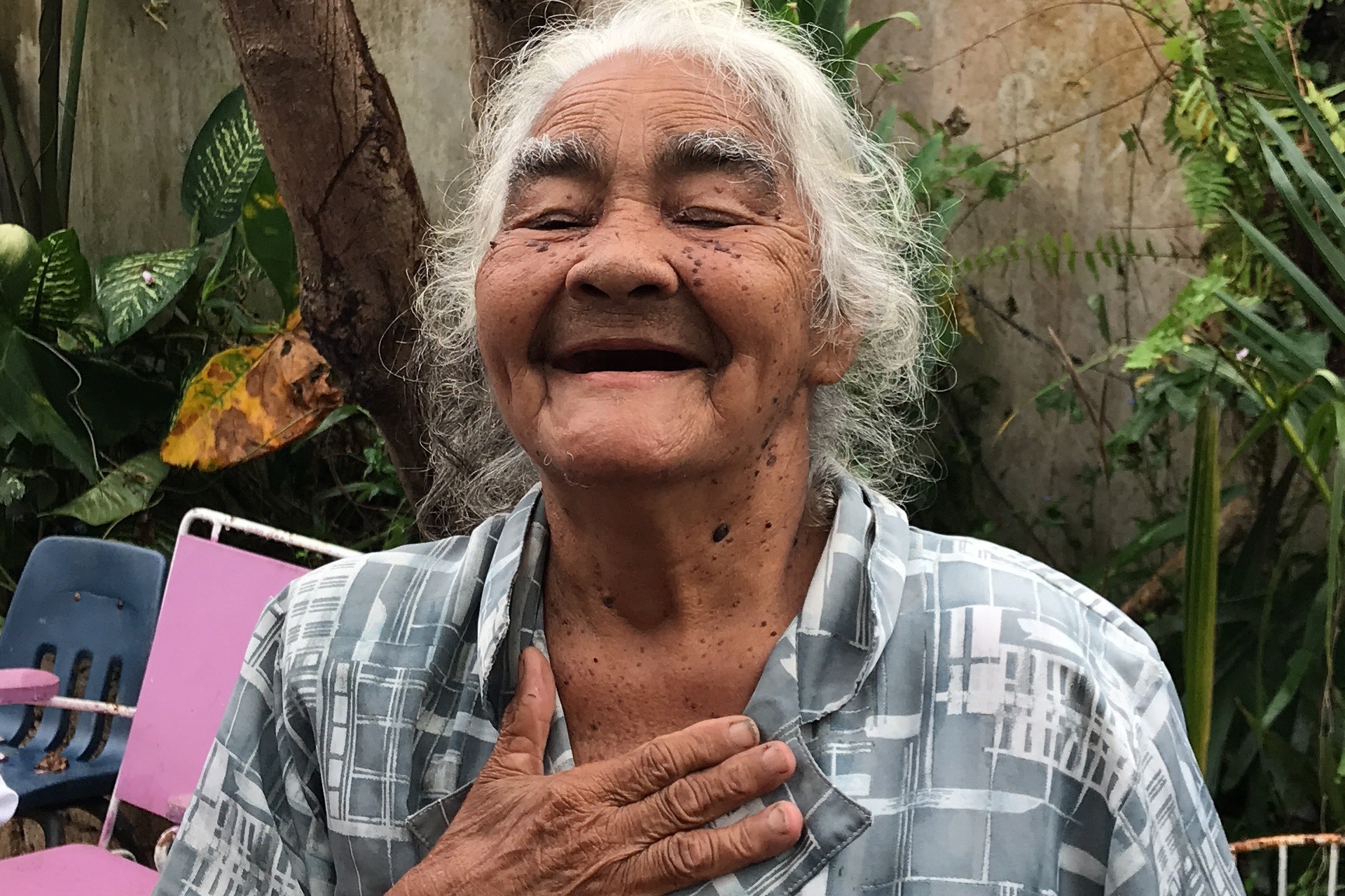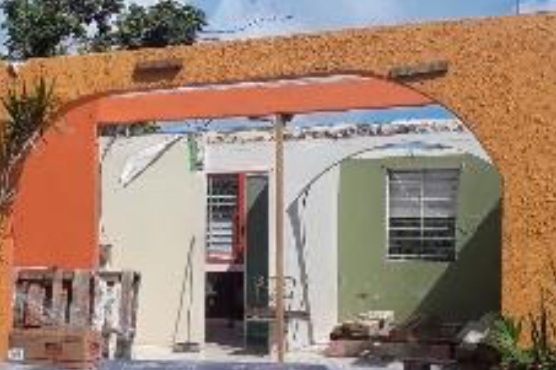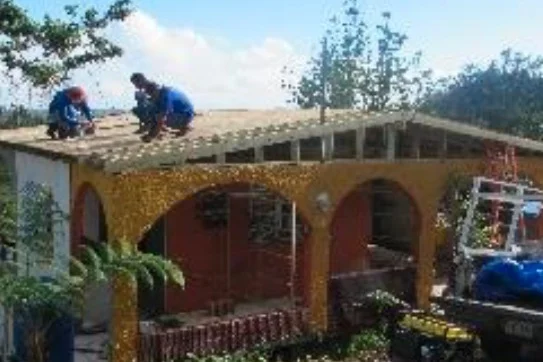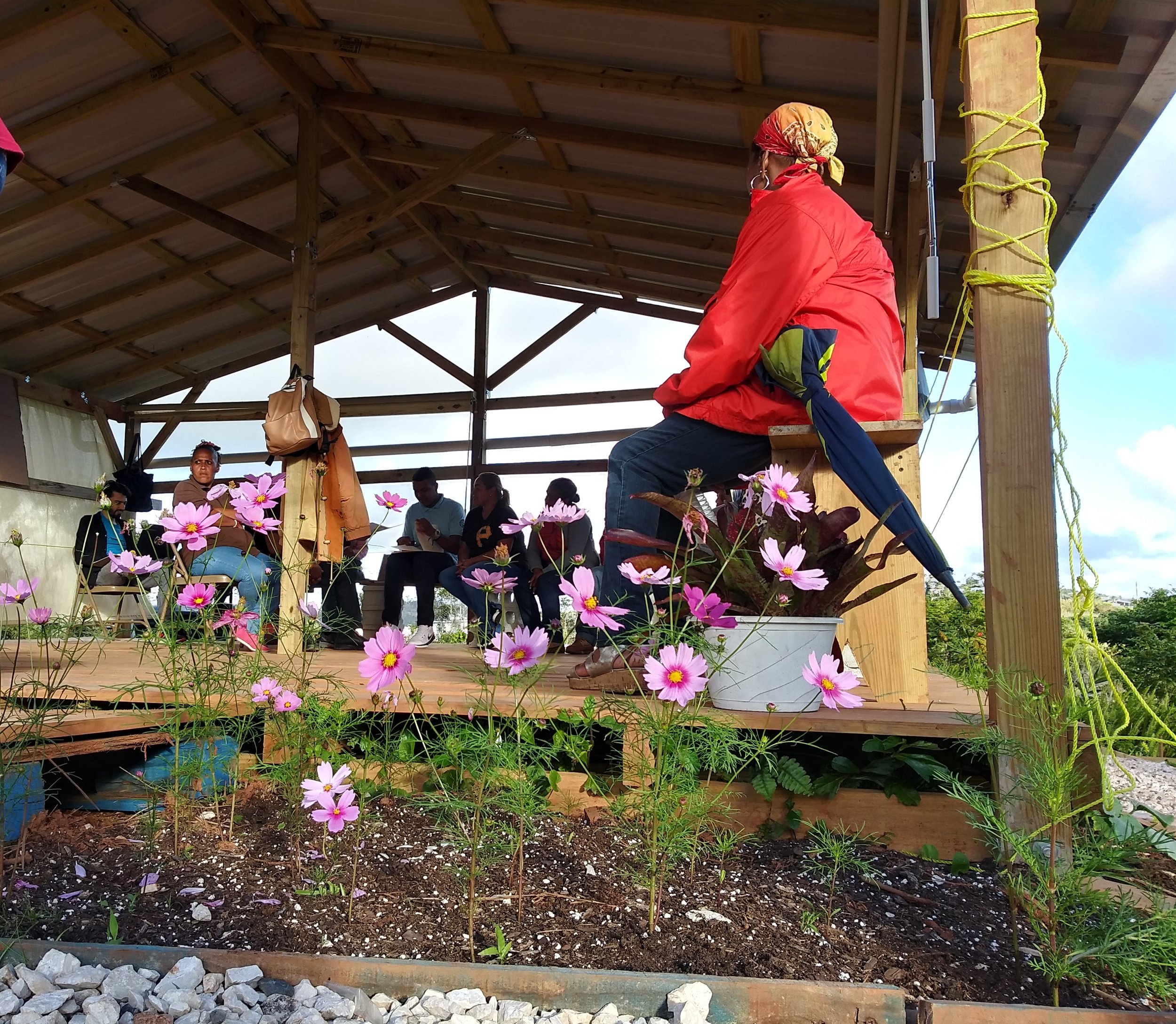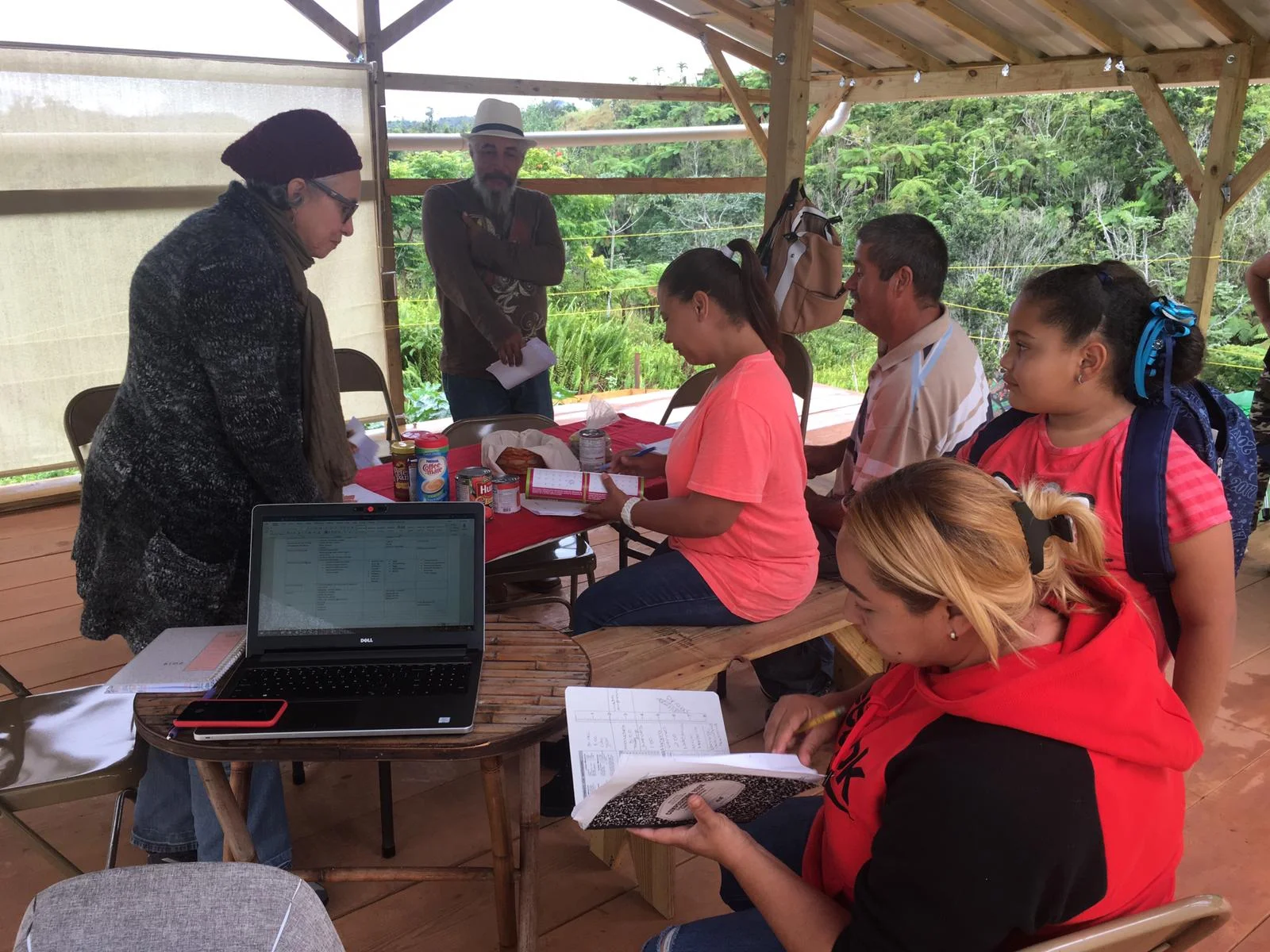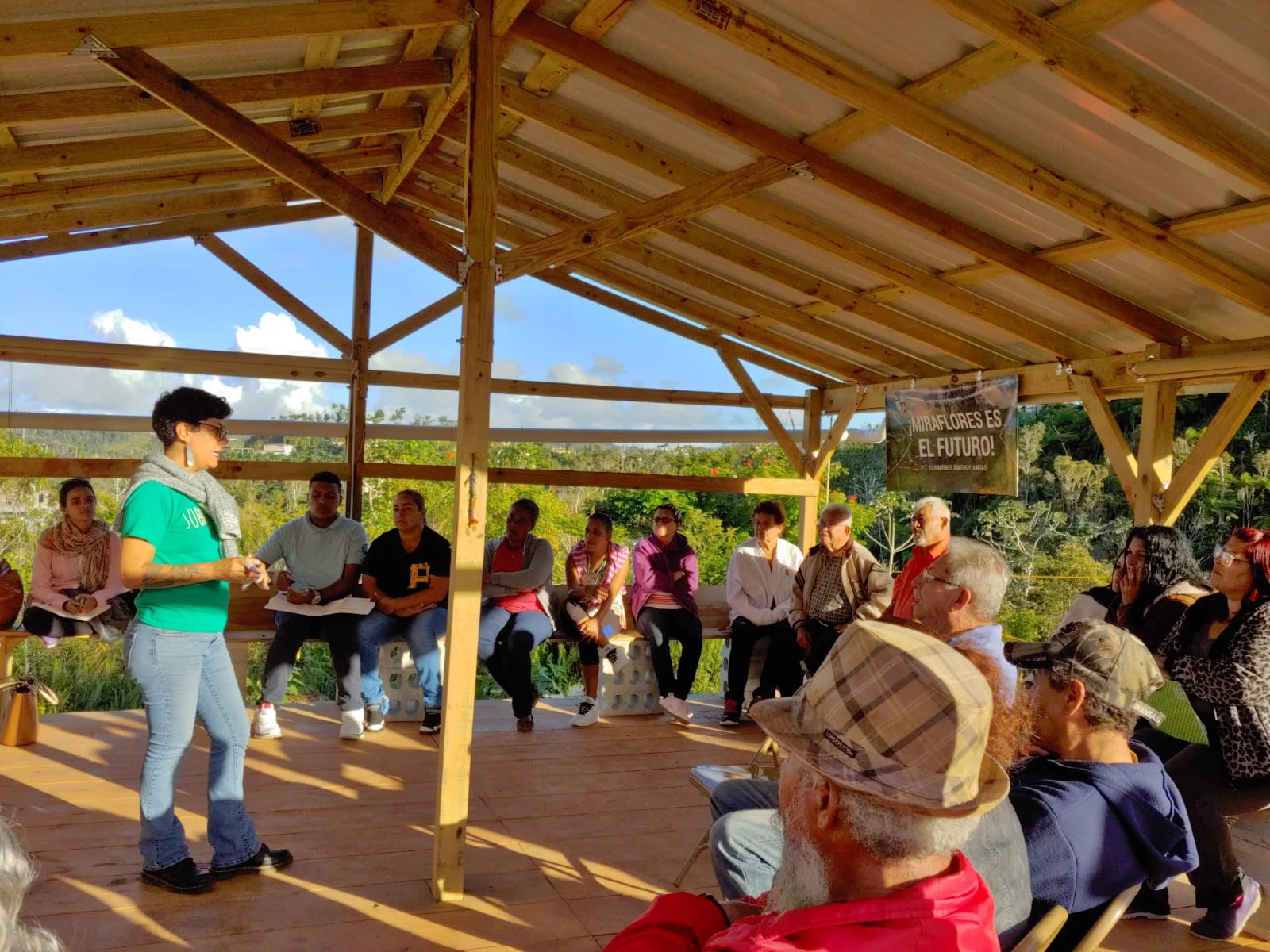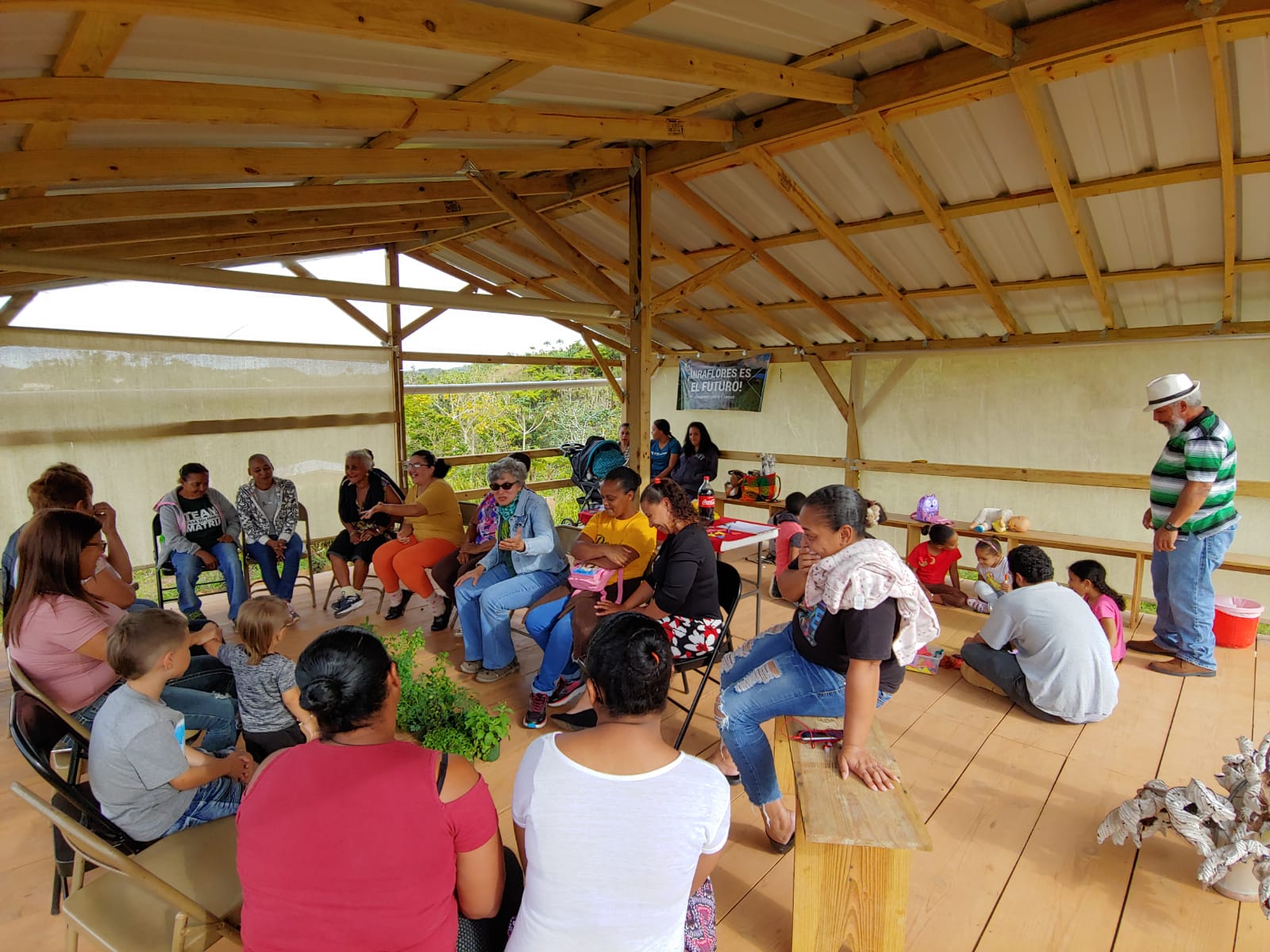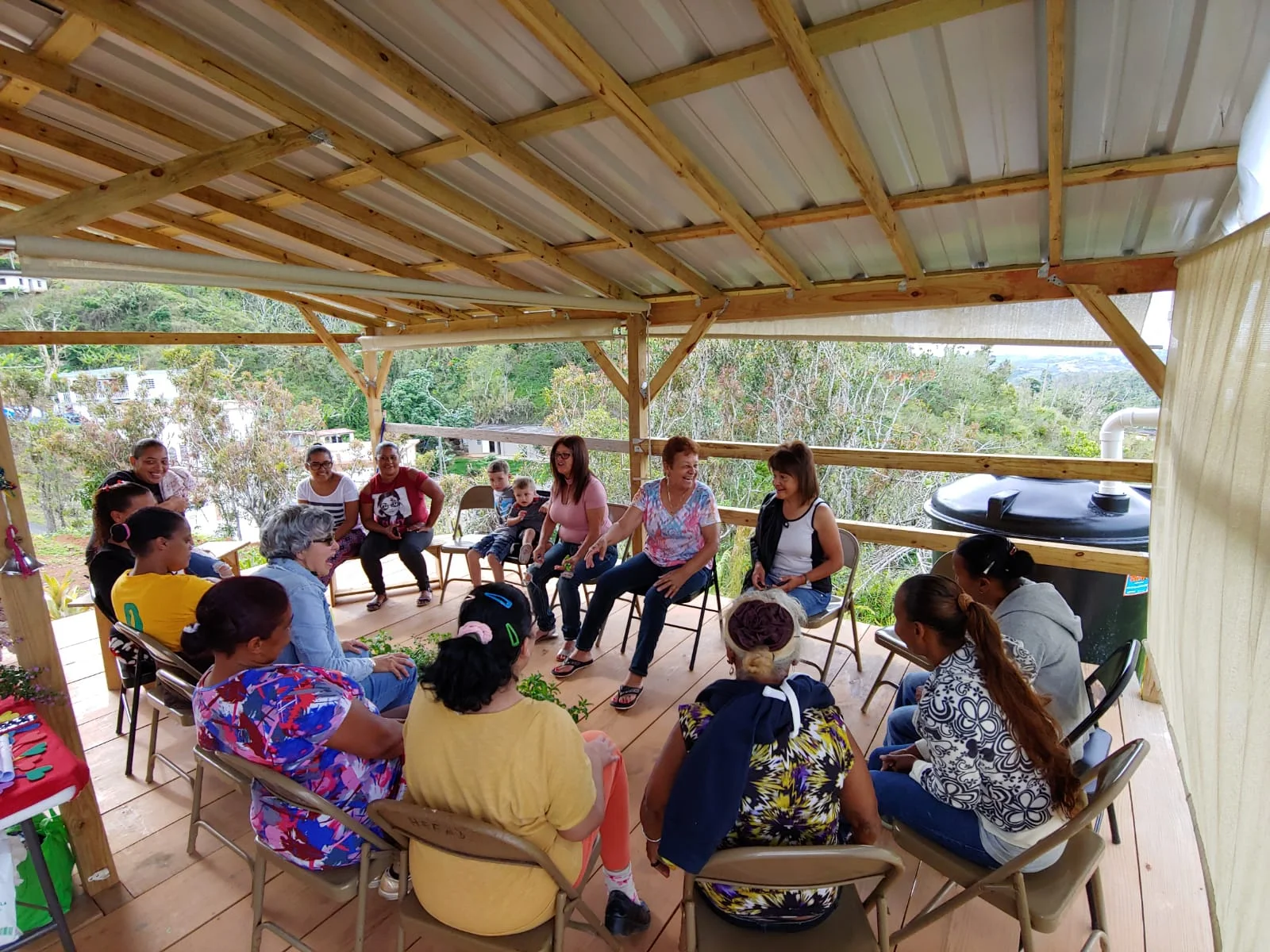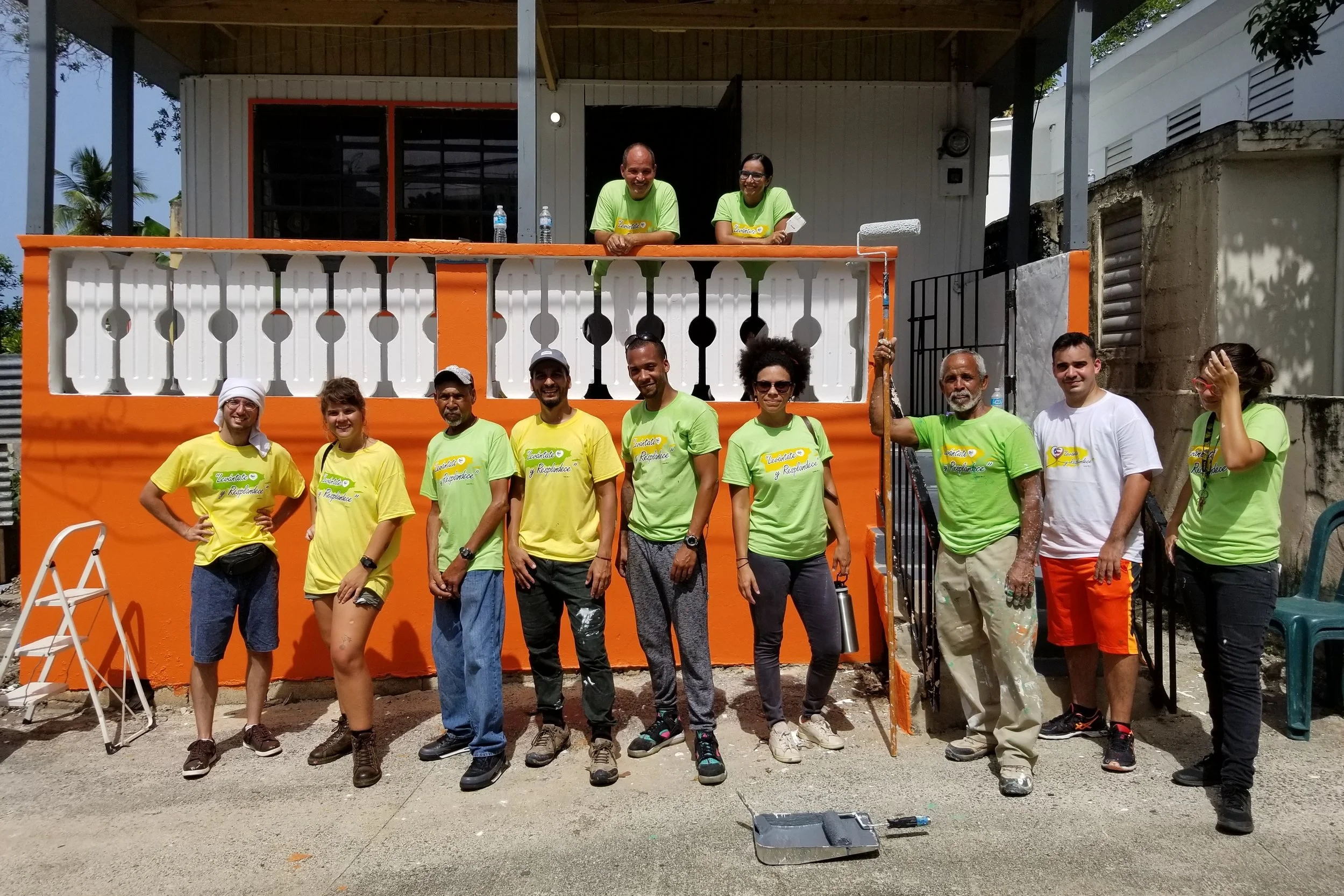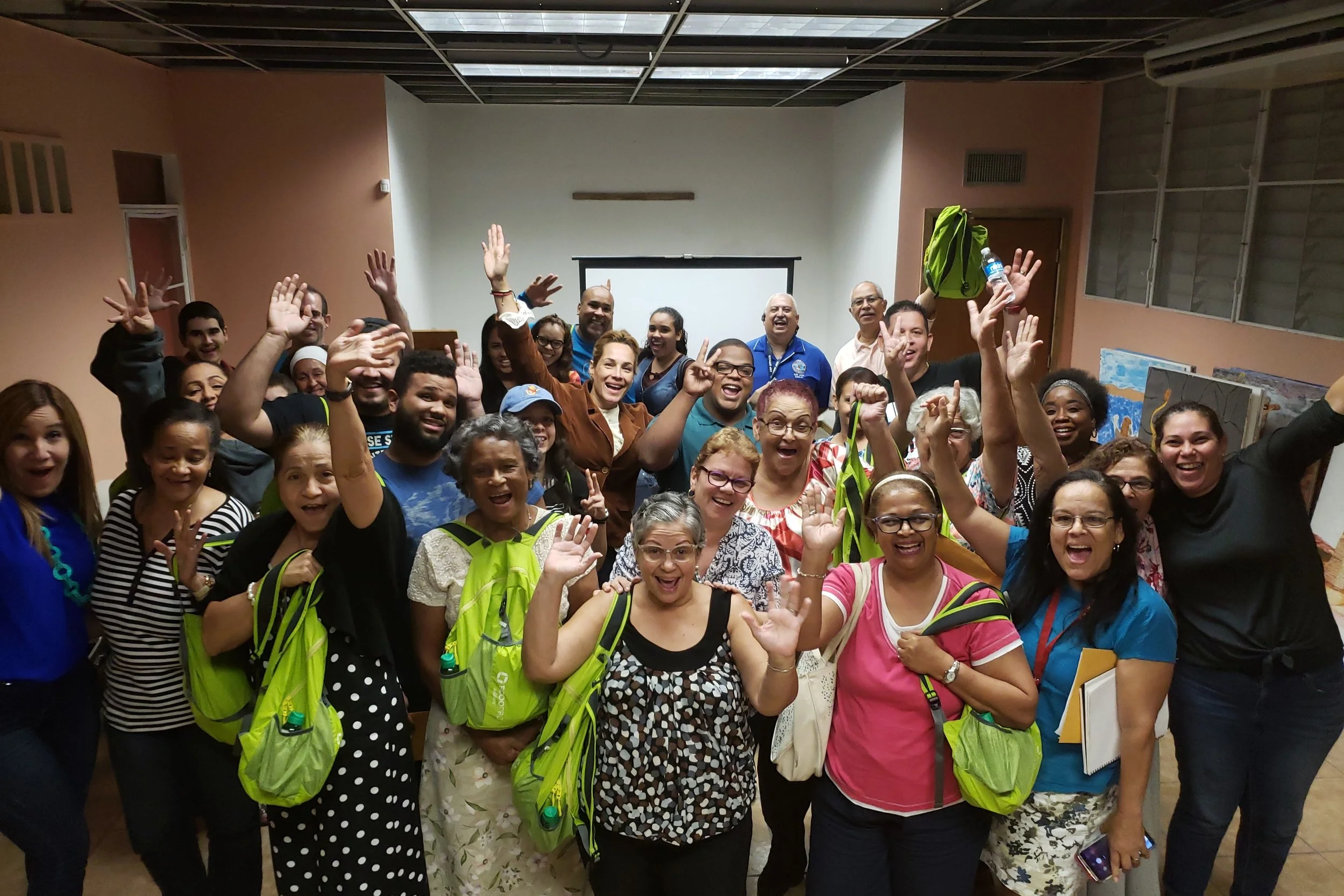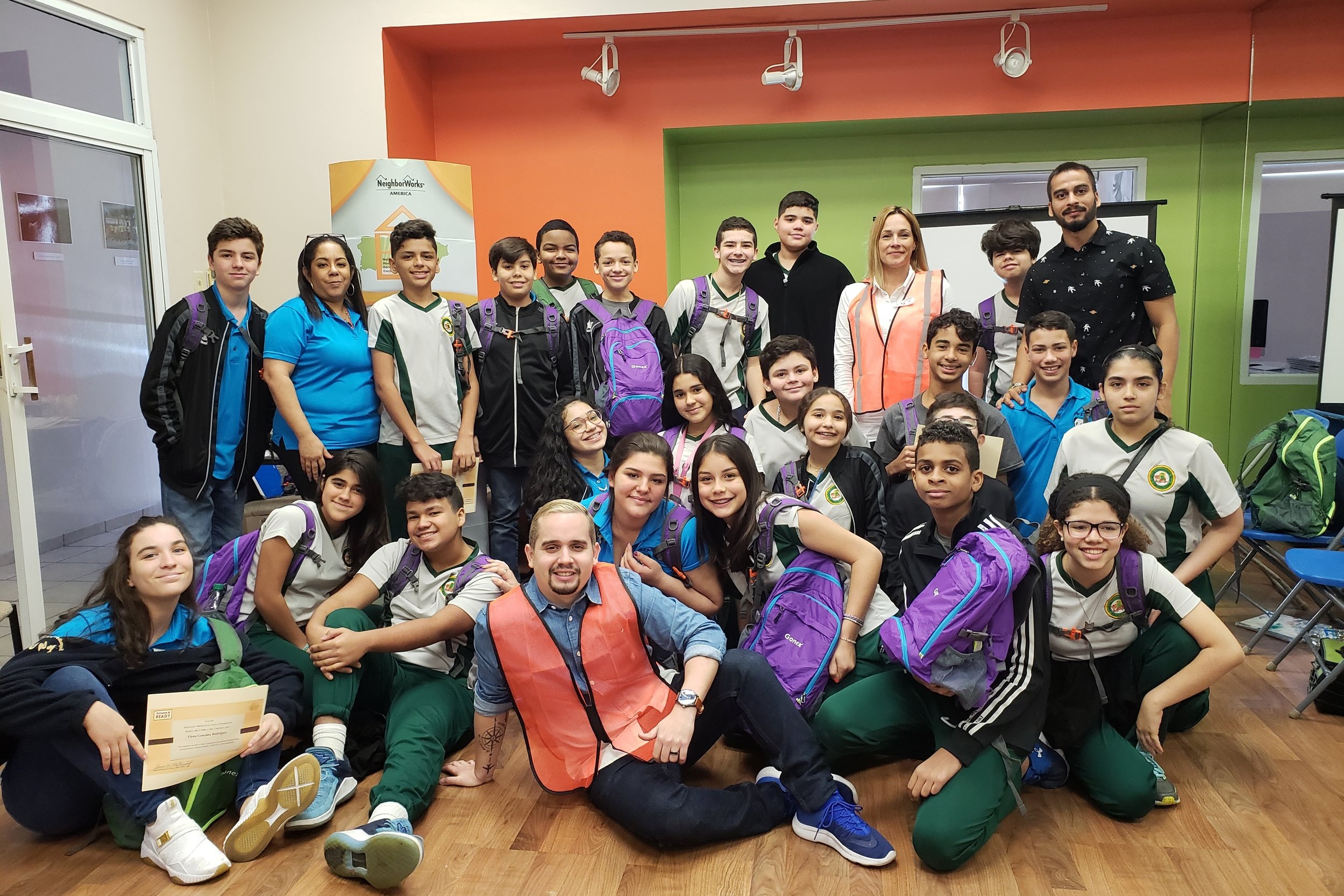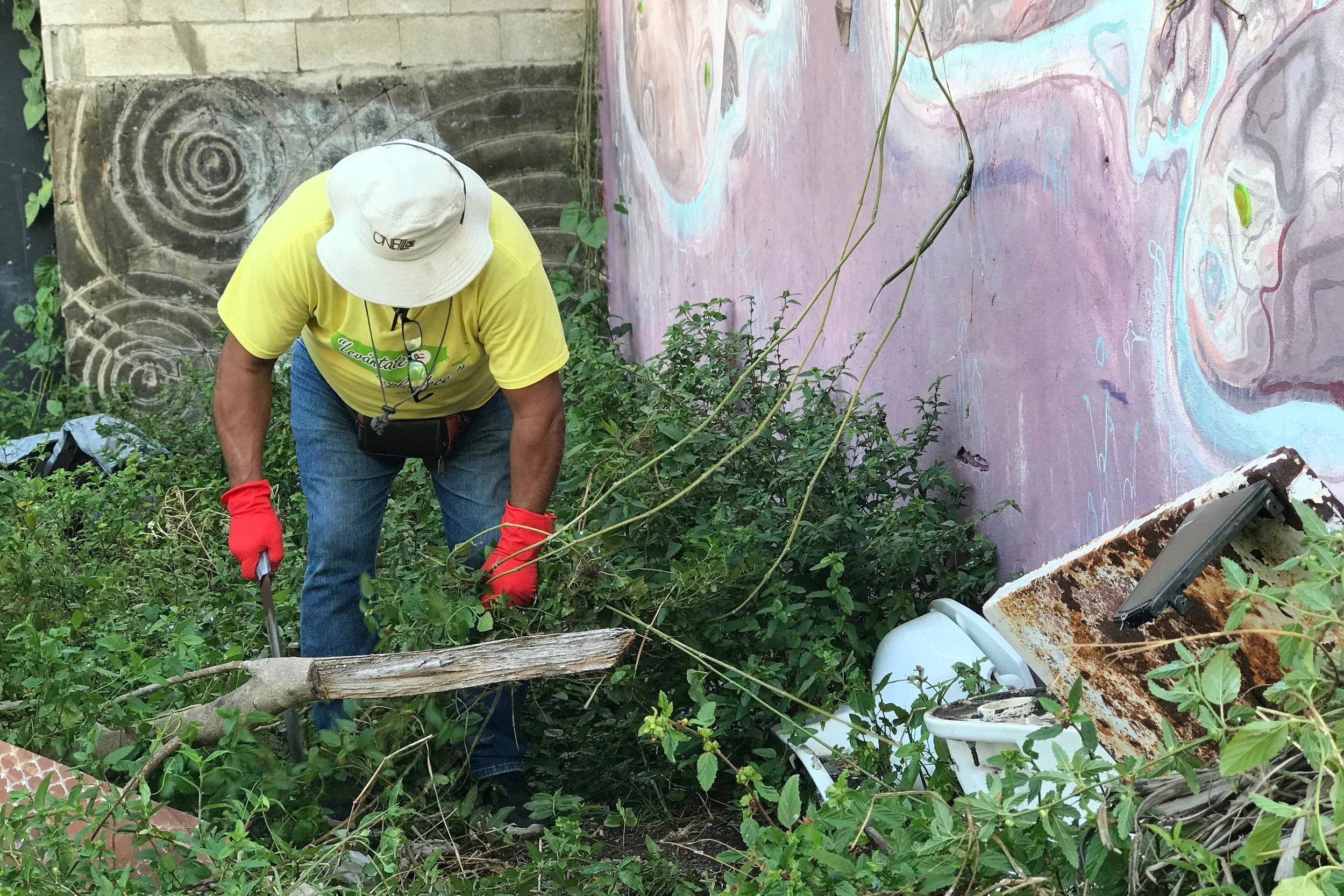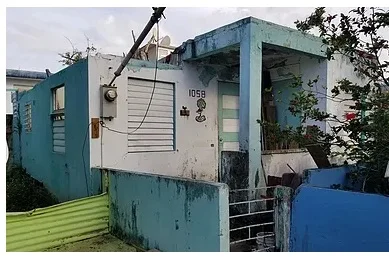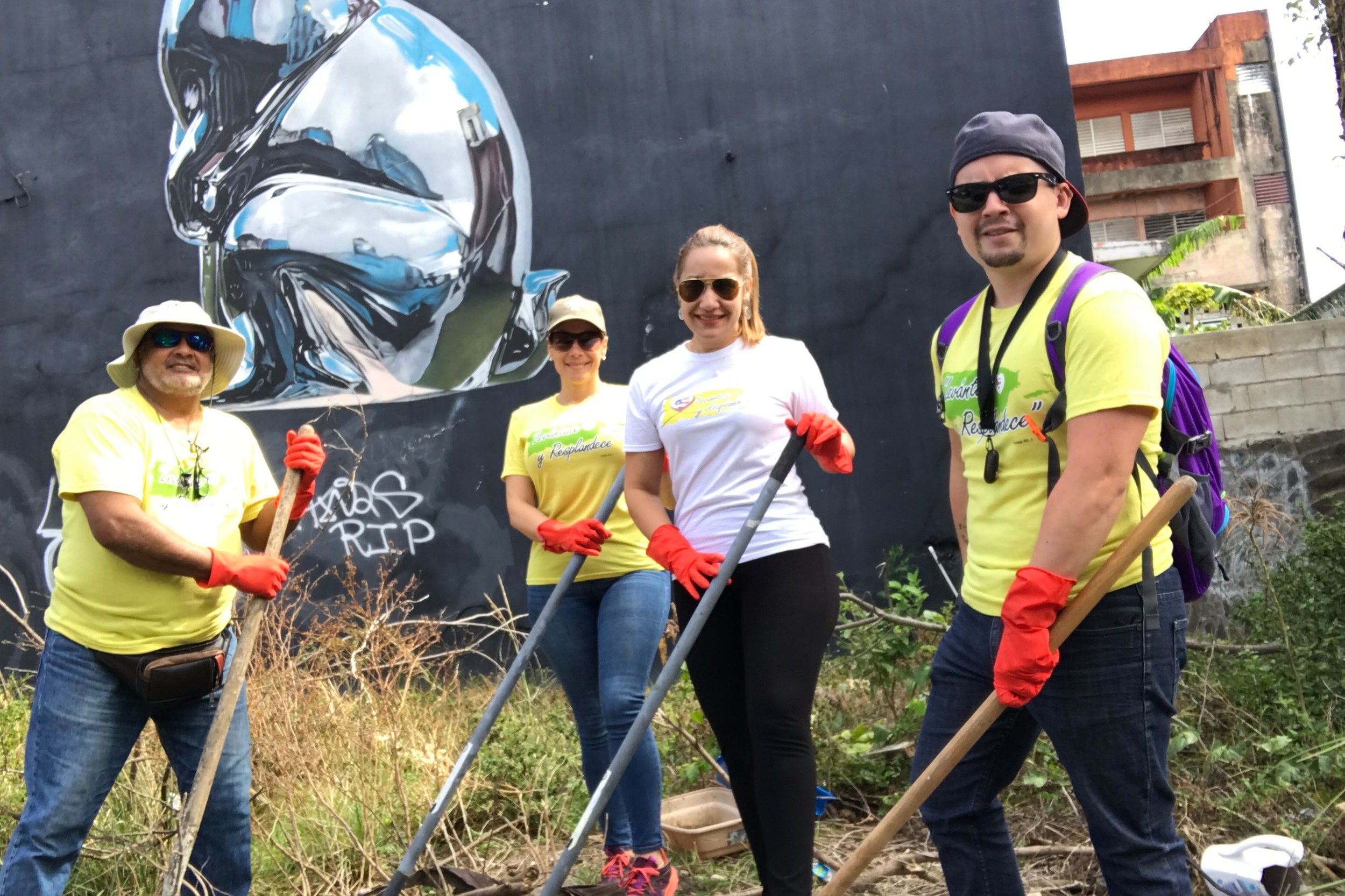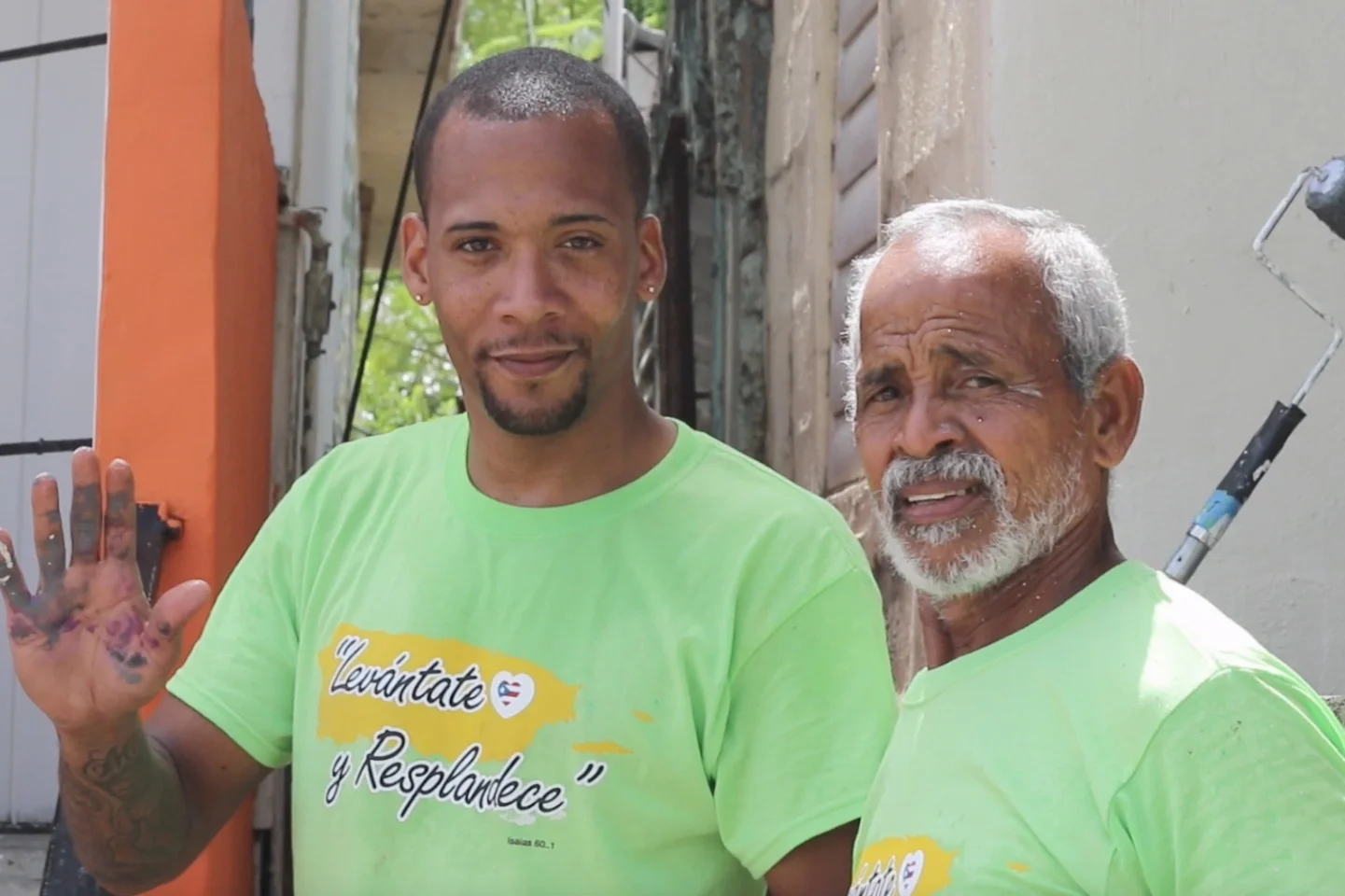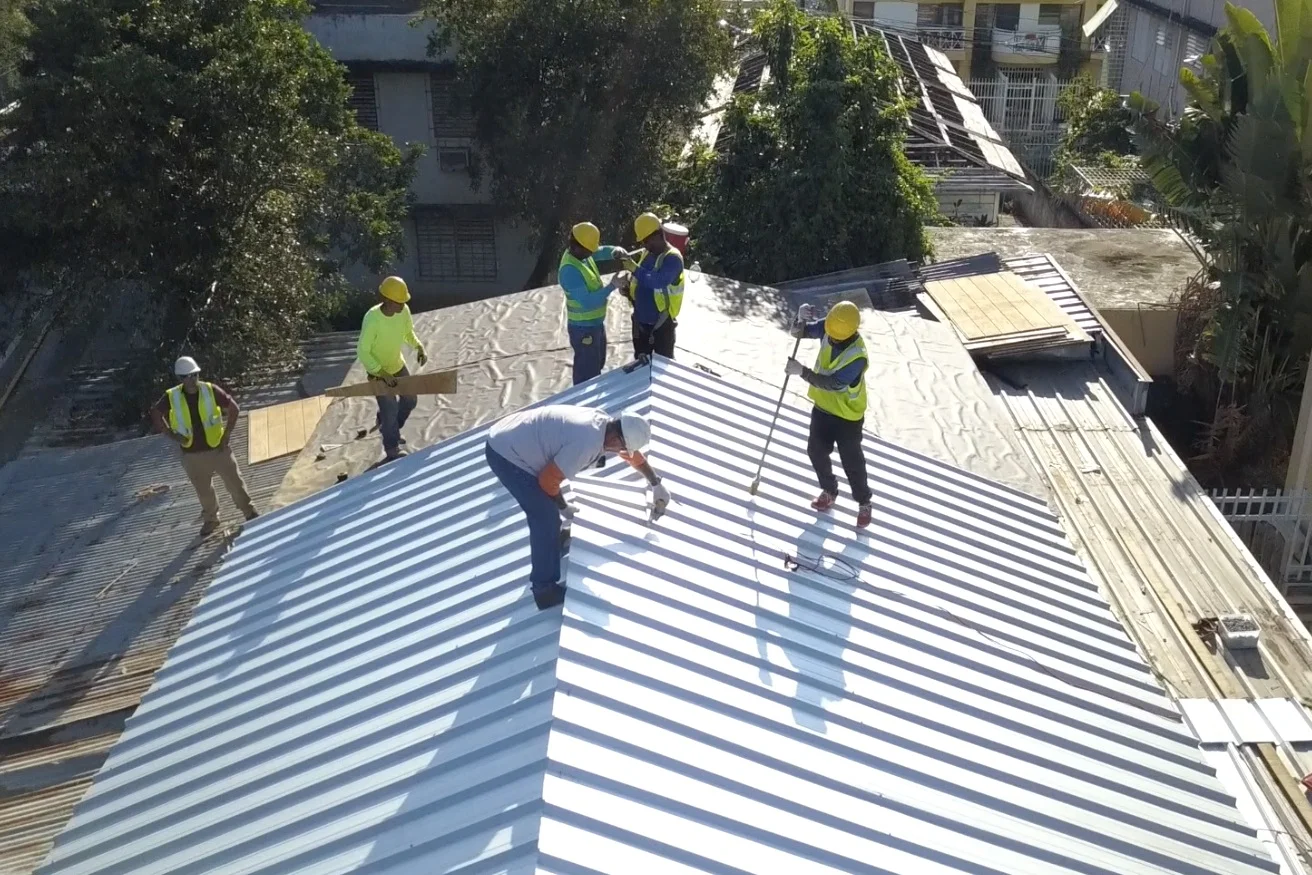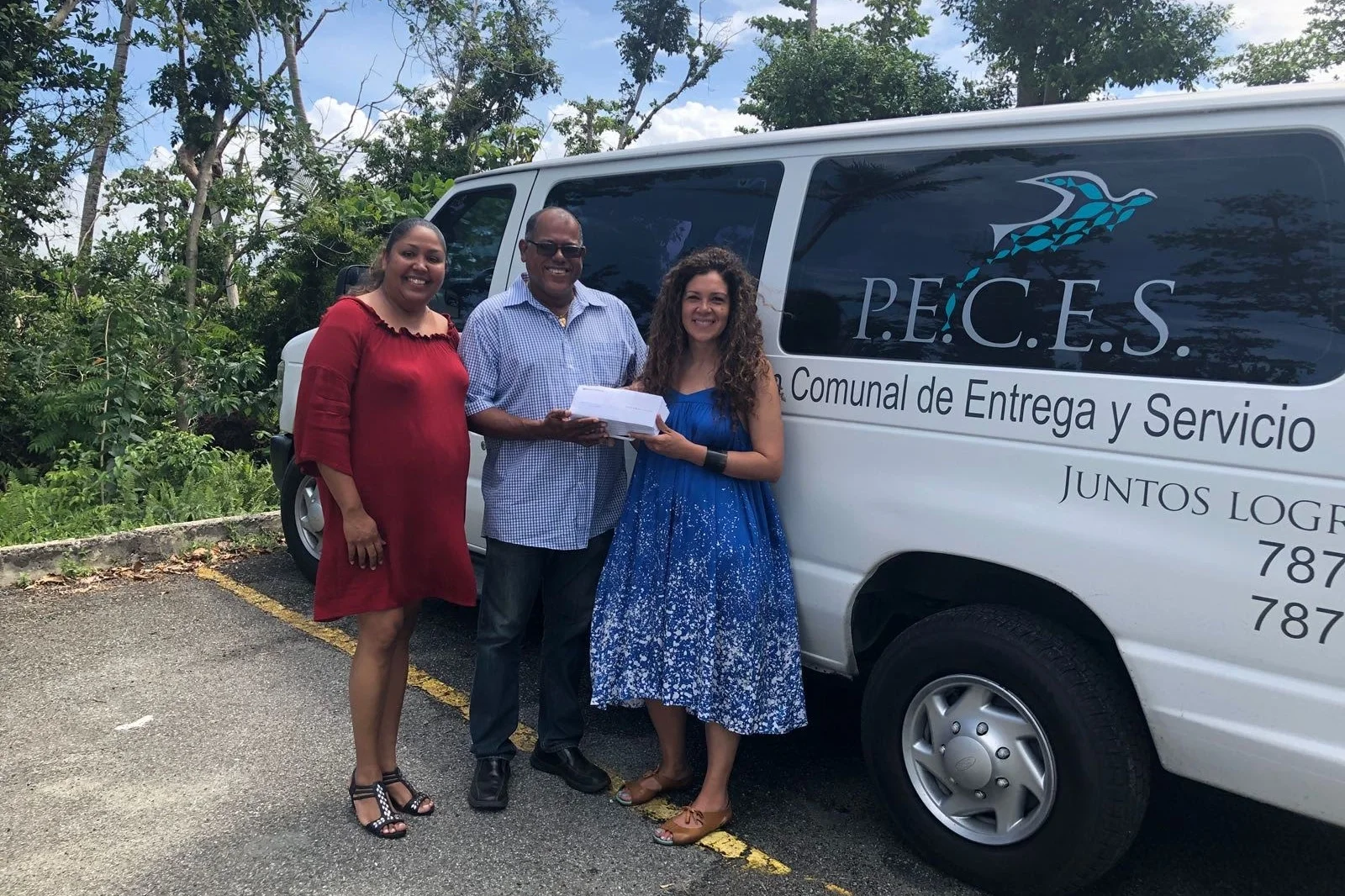The Challenge:
The 2017 hurricane season left unprecedented damage to the island’s already precarious housing infrastructure. An inequitable and insufficient response from FEMA left many people without a safe and dignified home while others remain destroyed, as if María had passed yesterday. Billions in federal FEMA and CDBG-DR dollars are allocated to Puerto Rico but years after the hurricane very little had been paid out, meanwhile concerns regarding the local governments plans for use of the funds continue to rise in vulnerable communities seemingly at-risk of displacement. The earthquake events in 2020 also exacerbated the housing needs of thousands of Puerto Rican families.
How is Hispanic Federation Helping?
Hispanic Federation (HF) is supporting the development of resilient transitional and permanent housing in historically marginalized communities by working with local, trusted organizations that are coordinating on-the-ground housing and community development efforts. HF is also funding and facilitating a civil society coalition to collectively safeguard the right to safe and dignified housing and public participation in the recovery process and to amplify the voice of communities.
Who Are We Helping?
Viviendas Initiative (Island-wide)
HF has committed $3 million to a comprehensive housing and community development initiative that will focus on three key areas: physical repairs to homes, civil legal services, and advocacy to ensure access to federal resources and public participation in community development. The initiative will fund over 20 organizations to collaborate on the repair of more than 150 homes; community lawyering; and building long-term power to address systemic issues through a multi-sector coalition for housing and community development. Ayuda Legal Puerto Rico and Fundación Fondo de Acceso a la Justica both received grants and partnered in the development of the initiative. Additional grantees are: Alianza de Lideres Comunitarios de Puerto Rico, Asociacion Mayaguezana de Personas con Impedimientos, Caras con Causa, Coalicion de Residentes de Vivienda Publica del Area Metropolitana, Colectivo Ile, CMTAS, Grupo de las Ocho Comunidades Aledanas al Cano Martin Pena/G8, Hope Builders, IDEBAJO, Instituto Universitario para el Desarrollo de las Comunidades, Junta Comunitaria de Casco Urbano de Rio Piedras, La Marana, One Stop Career Center, Pathstone Corporation, PECES, Ponce Neighborhood Housing Services, Proyecto Matria, Taller Salud, and Urbe Apie.
Water Alliance (Island-wide)
HF teamed together with Puerto Rico Community Foundation (PRCF), Oxfam America, and the Mesa Multisectorial de Bosque Modelo on a multi-year initiative to strengthen all 239 community-managed water distribution systems across the island, also known as non-PRASA systems. This initiative aimed to enable sustainable access to water through restoration and improvement of infrastructure and the strengthening of administrative capacity within communities. Community aqueducts provide potable water and are not connected to the Puerto Rico Aqueduct and Sewage Authority (PRASA). Most of these systems are in isolated rural areas and many of them do not use water treatment technology. They are operated by community-organized committees or boards that administer and maintain the systems. Strengthening these infrastructures have included the installation of solar powered systems (where possible) and back-up energy equipment, support for regulations compliance, mentoring between communities, and infrastructure repair.
Proyecto ENLACE del Caño Martín Peña/G8 (San Juan)
Proyecto Enlace fights for social and environmental justice together with the eight historically marginalized communities neighboring El Caño Martin Peña, an urban tidal channel that for decades has suffered the effects of contaminated water due to lack of sewage infrastructure and channel maintenance. After Hurricane María destroyed more than 1,000 rooftops in the area, ENLACE launched Techos para el Caño, an initiative to replace blue tarps with permanent roofs in El Caño. With HF funding they have hired local builders to repair the roofs on dozens of homes in ways that will be resilient in the face of future hurricanes.
Centros Sor Isolina Ferré (Guayama, Cataño, San Juan, Villalba, Bayamón, and Canovanas)
For decades, Centros Sor Isolina Ferré has focused on providing integrated social services that support community building and empowerment. HF has partnered with CSIF in six municipalities to repair roofs destroyed by Hurricane María. CSIF focused their efforts on elderly residents who either did not qualify for FEMA assistance, or were granted insufficient funds to repair their homes.
Proyecto Matria (Orocovis)
In the mountainous, difficult-to-reach center of the island, Proyecto Matria, with the backing of HF, has launched Casa Solidaria Matria, a woman-centered work and activities center that aims to stimulate reconstruction, microenterprise development, and education. Proyecto Matria offers a comprehensive social and microenterprise development curriculum to over 20 residents of Miraflores in Orocovis, as well as after-school programs for youth. Participants who graduated from the program have been able to incubate microenterprises in Casa Solidaria Matria. Proyecto Matria is also focused on repairing more than 15 homes in Miraflores. Additional funding will help Matria to incubate approximately 3 new enterprises related to agriculture and the food sector and will create at least 15 jobs in these companies.
Plenitud PR (Las Marías)
With HF funding, Plenitud PR took a two-pronged approach towards grassroots community rebuilding. It trained 50 community leaders to build sustainable “SuperAdobe” homes that can serve as models for low-cost, hurricane resistant construction all over the island. And to encourage self-sufficiency, the organization provided workshops on how to install and integrate rainwater catchment systems into homes. Plenitud PR installed over 30 of these rainwater systems in homes, schools, and community churches. A second phase of the project is expanding workshops, a paid apprentice program, technical support, and equipment to former workshops participants. As a result, more awareness will be developed about the feasibility of alternative construction techniques with minimal impact on the environment.
Puerto Rico Neighborhood Housing Services (NHS) (San Juan)
For the past 20 years, Puerto Rico NHS has worked in the community of Alto del Cabro in Santurce to empower residents through community development and the ownership of affordable, safe and reliable homes. With support from HF, Puerto Rico NHS rehabilitated six Alto del Cabro houses severely affected by Hurricane María.
La Maraña (Comerío, Carolina, Humacao)
This women-led community planning collective is using funding from HF to develop and pilot a participatory disaster recovery model – “Imaginación Post María,” in three communities to facilitate a just recovery process that potentiates communities to imagine, design, and lead their own recovery process. It has also been providingmicro grants to communities to implement local social impact projects in line with their collectively identified needs. As a first stage of their pilot, they rehabilitated six homes and a children’s park – all identified by community members. La Maraña is implementing their first participatory planning social impact project.
Programa de Educación Comunal de Entrega y Servicio PECES (Humacao)
A well-established organization in the area, PECES works to develop and empower marginalized communities in Humacao and across the Southeast, many who were devastated when the eye of Hurricane María made landfall in the area. PECES serves communities like Punta Santiago in Humacao, which is surrounded by water and was only reachable by helicopter in the days following María. With the help of HF funding, PECES launched a housing rehabilitation initiative that integrated young people as apprentices and made critical repairs on 21 homes in Punta Santiago.
Red por los Derechos de la Niñez y la Juventud de PR (Formerly known as the Red de Albergues, Instituciones y Centros para Menores de Puerto Rico) (Juncos)
The Red, a network organization that supports Puerto Rico’s youth shelter system and advocates for the rights of children, is advancing on the finalization of Casa Ramón, Puerto Rico’s first transitional home for young people, ages 18-21, who have aged out of the foster care system and are homeless. At its full capacity, the home will provide approximately 20 young people with a safe and dignified independent living space as well as ongoing psychosocial and other supportive services. Throughout the year, additional young people will be able to benefit from the services and support that Casa Ramón will provide.
Programa de Apoyo y Enlace Comunitario (Aguada)
The Programa de Apoyo y Enlace Comunitario (PAEC) promotes healthy and safe environments, as well as resiliency in families and community through prevention and intervention strategies. Grant support from HF will transform the former Maria Luisa Jiménez School into the Núcleo Resiliente de Recuperación Comunitaria as a vector for community well-being and to respond to community needs. The NRRC will be a place equipped with a photovoltaic system, drinking water system, a technology center, a community kitchen and clinical services. In addition, a community plan for disaster mitigation and recovery will be designed. The Center will provide a community space for disaster preparedness, recovery and training.

